- About
- Gallery
- Videos
- ZNNP+
- Updates
- Staff List
- Projects List
- Organisation
- Positive Health Dignity & Prevention
- Capacity Building
- Publications
- Volunteers
- Community Systems Strengthening
- Knowlwdge Management
- Advocacy & Human Rights
- Multimedia
- News
- Give
- Careers
- Contact
- Get in touch
- Capacity Building
- Treatment
- HIV, TB & NCDs
- AIDS
- Prison Work
- Differentiated Service Delivery
- Community Treatment Observatory
- Stigma Index
- About Us
- Credits
- Records
- Coordination Structures
- Leadership
- Staff
- Index
- Strategic Pillars
- HIV Intellectual Property Amplified (HIPA)
- Leadership
- Newsletter
- Sign Up
- Our Story
- Vacancies
- Donate
- Stigmatization
- Observatory
- Ministry of Health and Child Welfare
- UNAIDS
- National AIDS COUNCIL
- AHF
- AIDSFONDS
- Global Gund
- ITPC
- VSO
- TAG
- UNDP
- PEPFAR
- GNP+
- PITCH
- SAFAIDS
- FRONTLINE AIDS
- ZAN
- ARASA
News
- home
- News
- Corona Virus
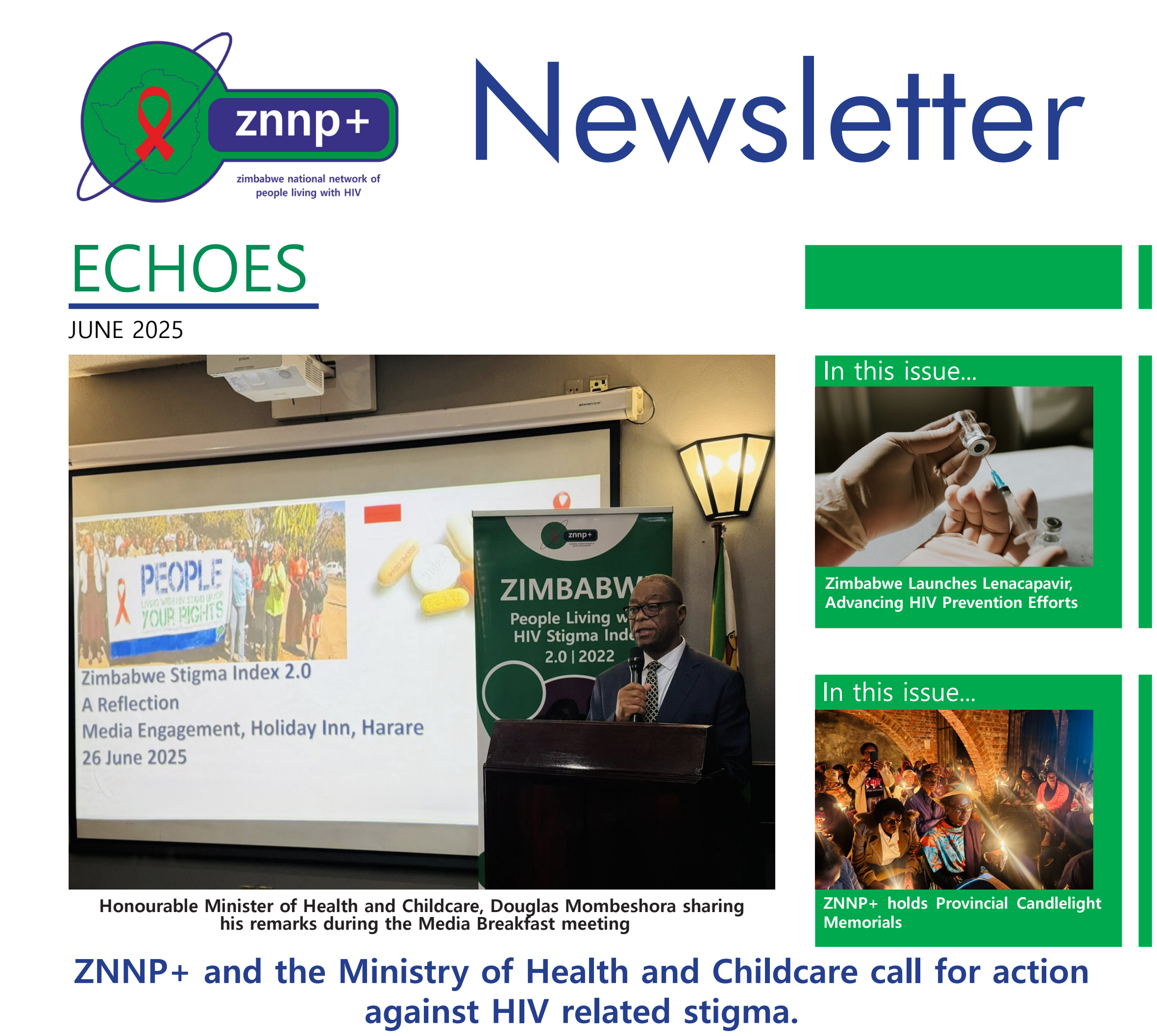
ECHOES Issue No. 26 JUNE 2025: ECHOES Issue No. 26 JUNE 2025
Minister of Health and Child Care, Honourable Dr Douglas Mombeshora echoed these sentiments, highlighting the severe impact of stigma on Zim- babwe’s HIV response. He remarked, “Stigma and discrimination remain among the most damaging barriers to Zimbabwe’s national HIV response. For people living with HIV, the impact goes beyond emotional distress — it is structural and system- ic.” Dr Mombeshora pointed out that stigma not only isolates individuals but also erodes their self- worth, discouraging vital actions such as HIV test- ing, disclosure, and adherence to treatment.
Despite the persistent stigma, Zimbabwe has made significant progress in its HIV response, with ap- proximately 1.3 million people living with HIV and over 96% accessing life-saving antiretroviral thera- py. However, internalized stigma continues to harm mental health, leading to delays in seeking care and complicating public health initiatives aimed at controlling the virus. The need for comprehensive strategies to address stigma remains critical in en- suring better health outcomes for those affected.
In a pivotal meeting in Nairobi, Mr. Makoni, the Executive Director of ZNNP+, shared his insights during the PLHIV Leadership Platform. His inter- view captured the urgency and complexity of the challenges faced by people living with HIV in Zim- babwe, particularly regarding the heavy reliance on donor funding.
Download PDF document
Download PDF
Extraordinary General Meeting: ZNNP+ Successfully Holds Extraordinary General Meeting, ushers in new constitution, 21 August 2025.
The EGM brought together representatives from all ten provinces of Zimbabwe, members of the ZNNP+ National Executive Committee, and key stakeholders, including the Joint United Nations Programme on HIV/AIDS (UNAIDS), the National AIDS Council (NAC), and the Zimbabwe AIDS Network (ZAN).
The adoption of the new constitution was met with unanimous approval, with all 53 present members endorsing the revised document. This collective decision reflects the unity and commitment of ZNNP+ members to advancing the rights, health, and well-being of people living with HIV in Zimbabwe. The adopted constitution will be shared widely and shall inform the elective AGM later in the year.
Stakeholders present commended the initiative and reaffirmed their support. Goodwill messages were delivered by representatives from UNAIDS, NAC, and ZAN, all of whom congratulated ZNNP+ on this critical step forward and pledged continued collaboration in implementing follow-up processes.
Download PDF document
Download PDF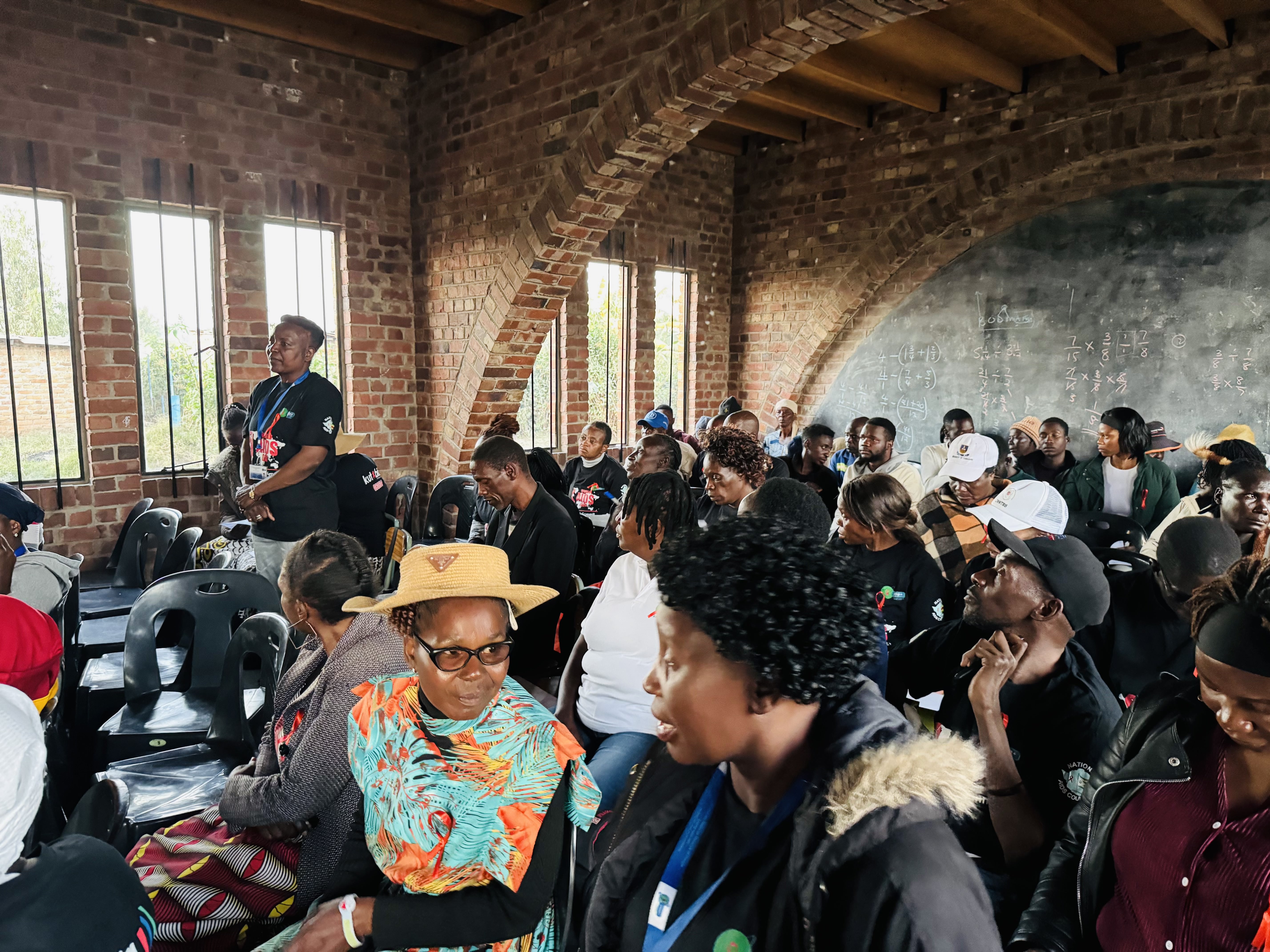
Together We Remember: A Powerful Tribute to Lives Lost to HIV/AIDS in Hopely
More than a hundred people gathered at Rising Star Primary School in Hopely on Thursday, 20 June 2025 for the Harare Provincial Candlelight Memorial Service, coordinated by the Zimbabwe National Network of People Living with HIV (ZNNP+). This solemn event honored those Living with and affected by HIV.
Despite the chilly weather, the crowd came together to remember their loved ones lost to HIV/AIDS, fostering a powerful sense of community and shared grief. Among those present were Dr. Innocent Hove, the Harare Provincial Medical Director from the Ministry of Health and Child Care, Mr. Adonija Muzondiona the Harare National Aids Council Provincial Manager, and stakeholders from Zim-TTECH..
Dr. Hove urged attendees to reflect on the lives lost, emphasizing the emotional weight behind each name and face,
Download PDF document
Download PDF
2024 Spotlights
Recent data reveals a significant milestone in the fight against HIV, with 129 046 recipients of care registered in 2024 contributing 28.36% of the total number of registrations which stands at 454,874. This substantial figure not only marks progress in living no one behind in the fight against HIV but also highlights the expanded reach of health initiatives aimed at educating and supporting individuals living with HIV.
A highlight of the event was a breast cancer survivor who shared her inspiring journey, bridging the experiences of living with HIV and the challenges of breast cancer. Her story resonated with attendees, pro- viding insight into the emotional and physical struggles faced by many.
The rise in registration is a testament to the growing recognition of HIV status among the population, show- casing the effectiveness of our community cadres who continuously encourage individuals to seek HIV related services. By understanding and addressing the needs of both new and long-term recipients of care, health organizations can better tailor their communication strategies around HIV-related messages
Download PDF document
Download PDF
Impact of USG Stop Work Orders on the Zimbabwe HIV Response and Recommendations for Addressing Service Delivery Gaps.
On April 16, 2025, the National Meaningful Involvement of People Living with HIV (MIPA) Forum convened in Kadoma to discuss the significant challenges posed by the recent United States Government (USG) Stop Work Orders on the HIV response in Zimbabwe. This meeting brought together key stakeholders, including sector wide representatives of people living with HIV (PLHIV) and government, to assess the current landscape of HIV service delivery and to formulate actionable recommendations.
Download PDF document
Download PDF
Zimbabwe National Network of People living with HIV (ZNNP+) Statement with regards to elements of PEPFAR funding.
Harare, Zimbabwe – As ZNNP+ we recognize the anxiety surrounding the recent stop work orders affecting some of the health projects, particularly those supported by the U.S. President's Emergency Plan for AIDS Relief (PEPFAR). We acknowledge the fears and anxieties shared by communities about the potential consequences of these disruptions on health services critical to combating the HIV and AIDS epidemic.
- • Reduced Access to Essential Services: Many individuals rely on uninterrupted access to treatment and care. The disruption of programs raises concerns about potential health setbacks.
- • Increased Stigma and Discrimination: The perception of dwindling support can discourage individuals from seeking help, exacerbating feelings of isolation and stigma.
- • Loss of Community Trust: Uncertainty around funding can erode confidence in health services, leading to fears that progress made in combating HIV and AIDS will be undone.
- • Long-term Health Outcomes: There is legitimate concern about how these interruptions may negatively impact long-term strategies to end the epidemic.
The implementation of stop work orders has led to significant fears, including:
Download PDF document
Download PDF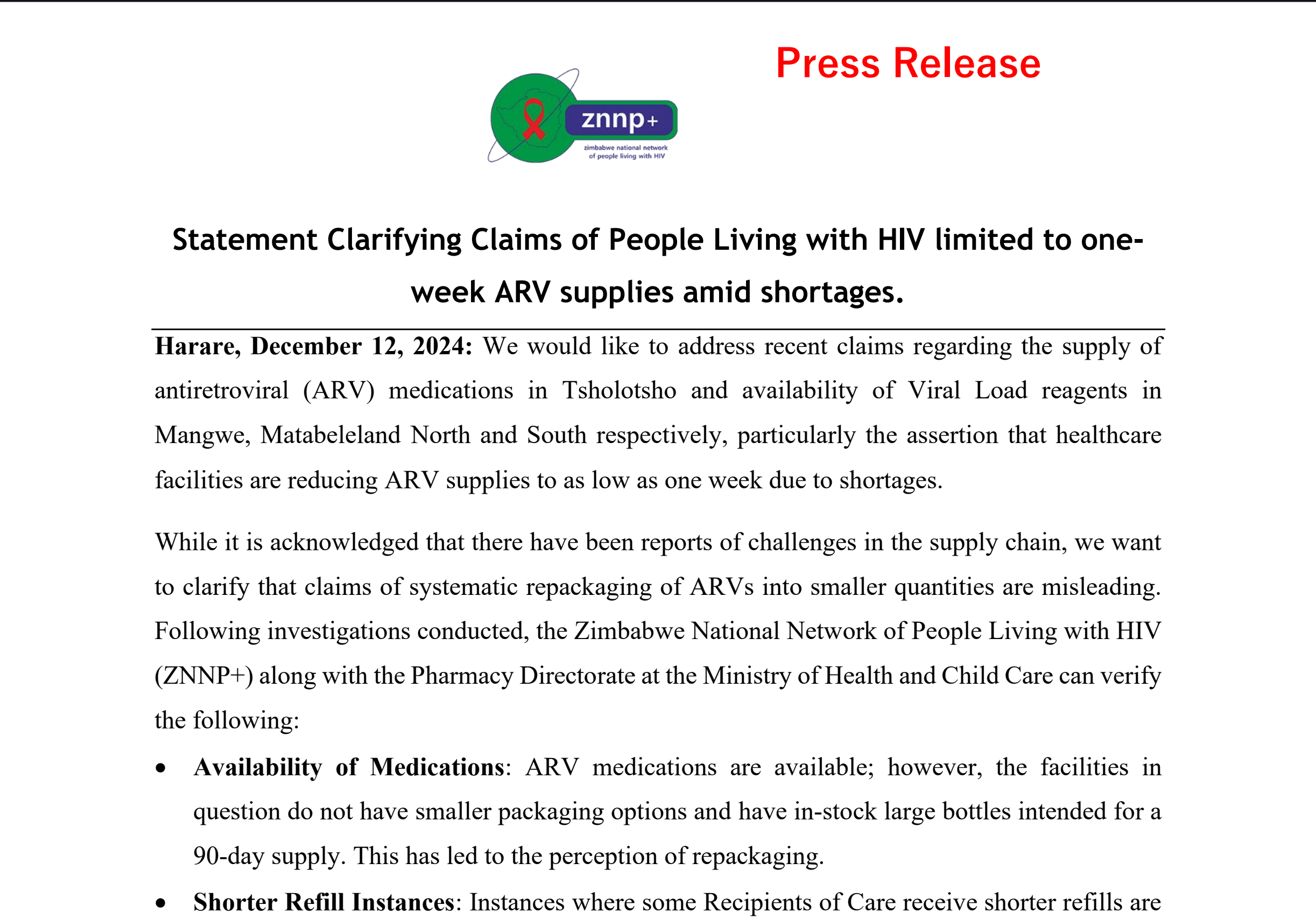
Statement Clarifying Claims of People Living with HIV limited to one- week ARV supplies amid shortages.
Harare, December 12, 2024: We would like to address recent claims regarding the supply of antiretroviral (ARV) medications in Tsholotsho and availability of Viral Load reagents in Mangwe, Matabeleland North and South respectively, particularly the assertion that healthcare facilities are reducing ARV supplies to as low as one week due to shortages.
While it is acknowledged that there have been reports of challenges in the supply chain, we want to clarify that claims of systematic repackaging of ARVs into smaller quantities are misleading. Following investigations conducted, the Zimbabwe National Network of People Living with HIV (ZNNP+) along with the Pharmacy Directorate at the Ministry of Health and Child Care can verify the following:
Download PDF document
Download PDF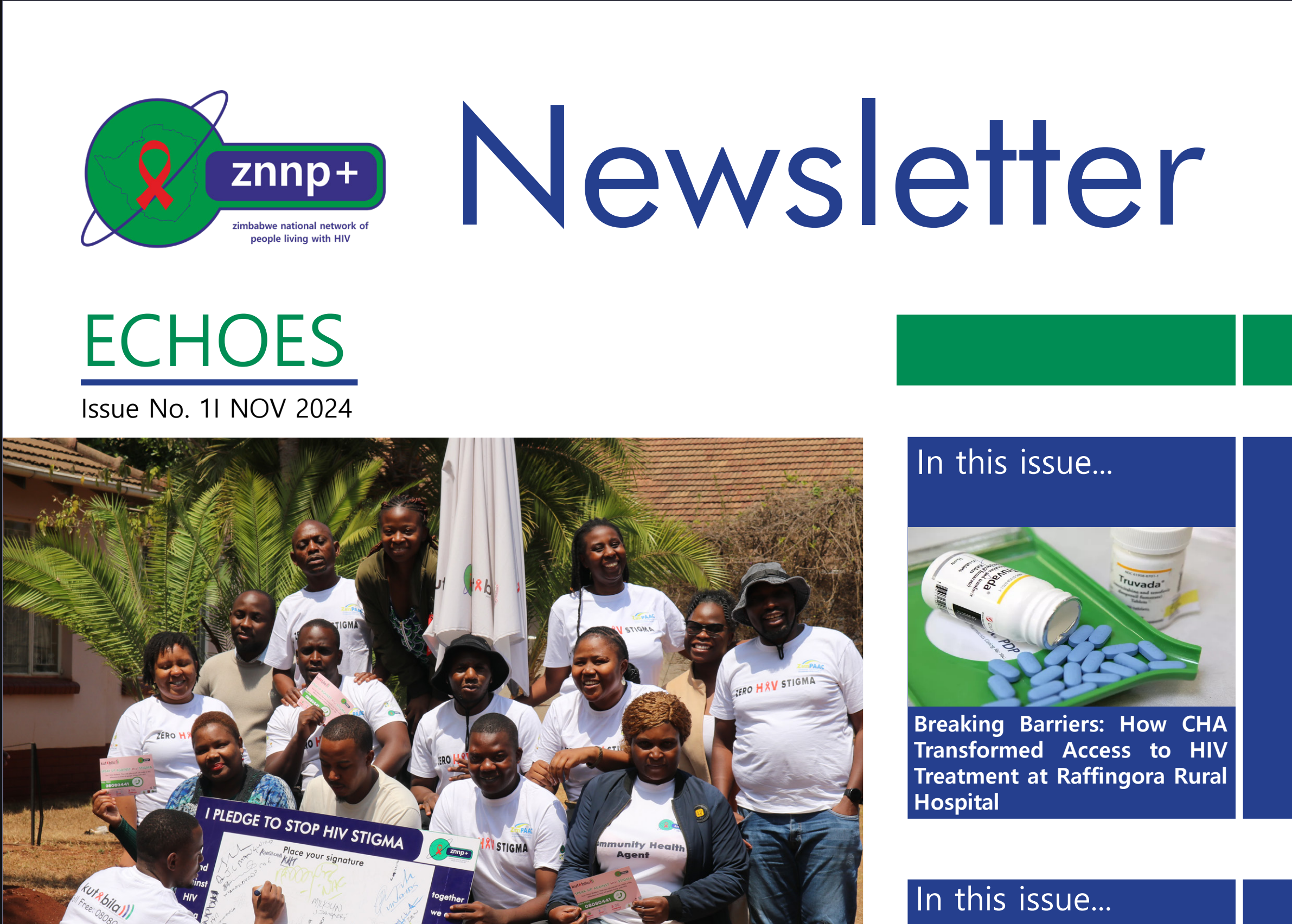
ECHOES Issue No. 1I NOV 2024
Breast Cancer Awareness month and activities.
The Zimbabwe National Network of People Living with HIV (ZNNP+) re- cently organized a Wellness Check Day to raise awareness about breast cancer. This event aimed to educate staff and foster solidarity among those affected by both breast cancer and HIV. Participants wore shades of pink to symbolize hope and awareness, creating a supportive atmos- phere focused on early detection and regular screenings.A highlight of the event was a breast cancer survivor who shared her inspiring journey, bridging the experiences of living with HIV and the challenges of breast cancer. Her story resonated with attendees, pro- viding insight into the emotional and physical struggles faced by many.
Health professionals led informative sessions on the importance of rou- tine check-ups and self-examinations, encouraging participant engage- ment and discussion. Despite the emotional weight of the topics, at- tendees left feeling empowered and better informed.
Download PDF document
Download PDF
Candlelight Memorial 2024: A Night of Remembrance in Rusape
On the evening of November 30th, the town of Rusape was illuminated not just by flickering candles, but by the collective spirit of resilience and remembrance. The Candlelight Memorial, organized by the Zimbabwe National Network of People Living with HIV (ZNNP+), brought together a diverse group of stakeholders, including representatives from the Ministry of Health and Child Care, National AIDS Council, the Civil Society Organizations (CSOs), and community members, all united in honoring the lives lost to AIDS over the years.
As the sun set, participants gathered at Vengere Hall, the atmosphere charged with both somber reflection and hope for the future. Candles were lit, symbolizing the light of those who had passed, and the flame of awareness that continues to burn in the fight against HIV/AIDS.
The ZNNP+ Executive Director, Mr. Makoni, spoke passionately about the importance of remembrance,
“Tonight, as we light our candles, let each flame represent a life—a life that was cherished, a life that was loved, and a life that continues to inspire. We remember those who lost their battle with AIDS, and we honor the tireless efforts of those who have dedicated their lives to supporting people living with and affected by HIV. Their compassion and commitment light the way for us all,” he said.
As the memorial progressed, attendees listened intently to speeches highlighting the ongoing challenges faced by people living with HIV. The speech read on behalf of the Minister of Health and Child Care, Dr. Douglas Mombeshora by Chief Director, Dr. Maxwell Hove during a Candlelight Memorial Commemoration, highlighted the strides the government of Zimbabwe has made to transform the healthcare landscape in the country,
“Our government is committed to ensuring equitable access to healthcare for all. We are implementing policies that prioritize education, prevention, and treatment, while also addressing the social determinants of health that contribute to the spread of HIV. We have signed COMPACT to ensure the government continue to prioritise treatment even when external support is significantly reducing. Together, we can build a future where every person living with HIV can thrive without fear or discrimination,” he said.
The chairperson for the membership of people living with HIV, Mr Marshal Makorovodo, shared his sentiments,
“As we remember those we’ve lost, we must also acknowledge the progress we have made. Advances in treatment and care have transformed HIV from a death sentence to a manageable condition for many. Yet, significant challenges remain. Stigma, discrimination, and systemic inequalities still hinder access to healthcare, education, and support for countless individuals,” he highlighted.
The event was not just about loss; it was also a celebration of resilience. Stories of survival and strength filled the air as community members signed the memorial quilt, fostering a sense of solidarity among those present. The candlelight flickered, casting a warm glow on faces filled with determination.
In that moment, the candles burned brightly, illuminating not only at Vengere Hall in Rusape but also the hope that one day, no one would have to mourn a life lost to AIDS. The Candlelight Memorial was a poignant reminder that while the journey is long, together, we can turn the tide against HIV and AIDS, ensuring that every life lived is cherished and every voice heard.
Download PDF document
Download PDF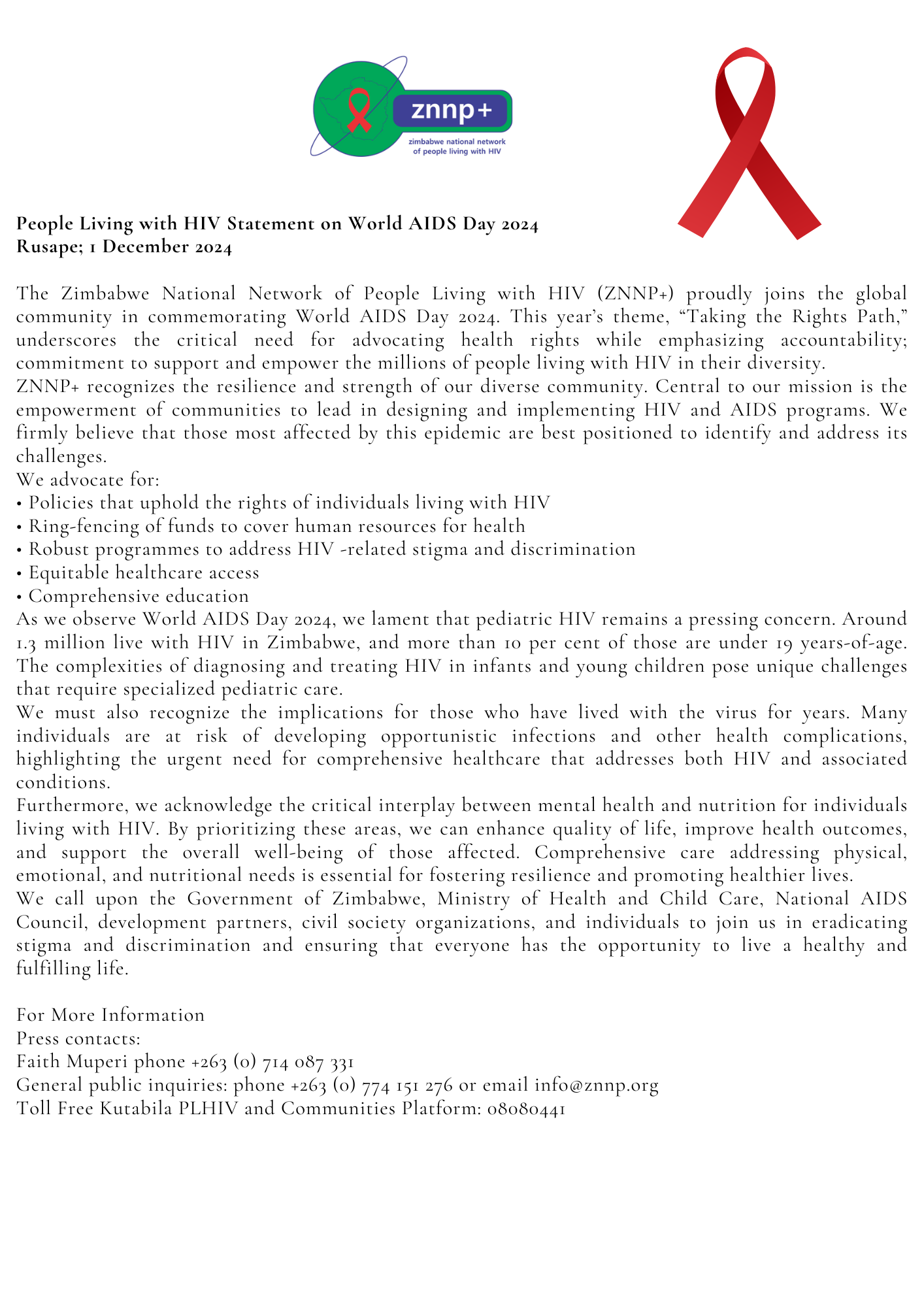
People Living with HIV Statement on World AIDS Day 2024
The Zimbabwe National Network of People Living with HIV (ZNNP+) proudly joins the global community in commemorating World AIDS Day 2024. This year’s theme, “Taking the Rights Path,” underscores the critical need for advocating health rights while emphasizing accountability; commitment to support and empower the millions of people living with HIV in their diversity.
ZNNP+ recognizes the resilience and strength of our diverse community. Central to our mission is the empowerment of communities to lead in designing and implementing HIV and AIDS programs. We firmly believe that those most affected by this epidemic are best positioned to identify and address its challenges. We advocate for:
- • Policies that uphold the rights of individuals living with HIV
- • Ring-fencing of funds to cover human resources for health
- • Robust programmes to address HIV -related stigma and discrimination
- • Equitable healthcare access
- • Comprehensive education
As we observe World AIDS Day 2024, we lament that pediatric HIV remains a pressing concern. Around 1.3 million live with HIV in Zimbabwe, and more than 10 per cent of those are under 19 years-of-age. The complexities of diagnosing and treating HIV in infants and young children pose unique challenges that require specialized pediatric care. We must also recognize the implications for those who have lived with the virus for years. Many individuals are at risk of developing opportunistic infections and other health complications, highlighting the urgent need for comprehensive healthcare that addresses both HIV and associated conditions. Furthermore, we acknowledge the critical interplay between mental health and nutrition for individuals living with HIV.
By prioritizing these areas, we can enhance quality of life, improve health outcomes, and support the overall well-being of those affected. Comprehensive care addressing physical, emotional, and nutritional needs is essential for fostering resilience and promoting healthier lives. We call upon the Government of Zimbabwe, Ministry of Health and Child Care, National AIDS Council, development partners, civil society organizations, and individuals to join us in eradicating stigma and discrimination and ensuring that everyone has the opportunity to live a healthy and fulfilling life.
For More Information
Press contacts:
- Faith Muperi phone +263 (0) 714 087 331
- General public inquiries: phone +263 (0) 774 151 276 or email info@znnp.org
- Toll Free Kutabila PLHIV and Communities Platform: 08080441
Download PDF document
Download PDF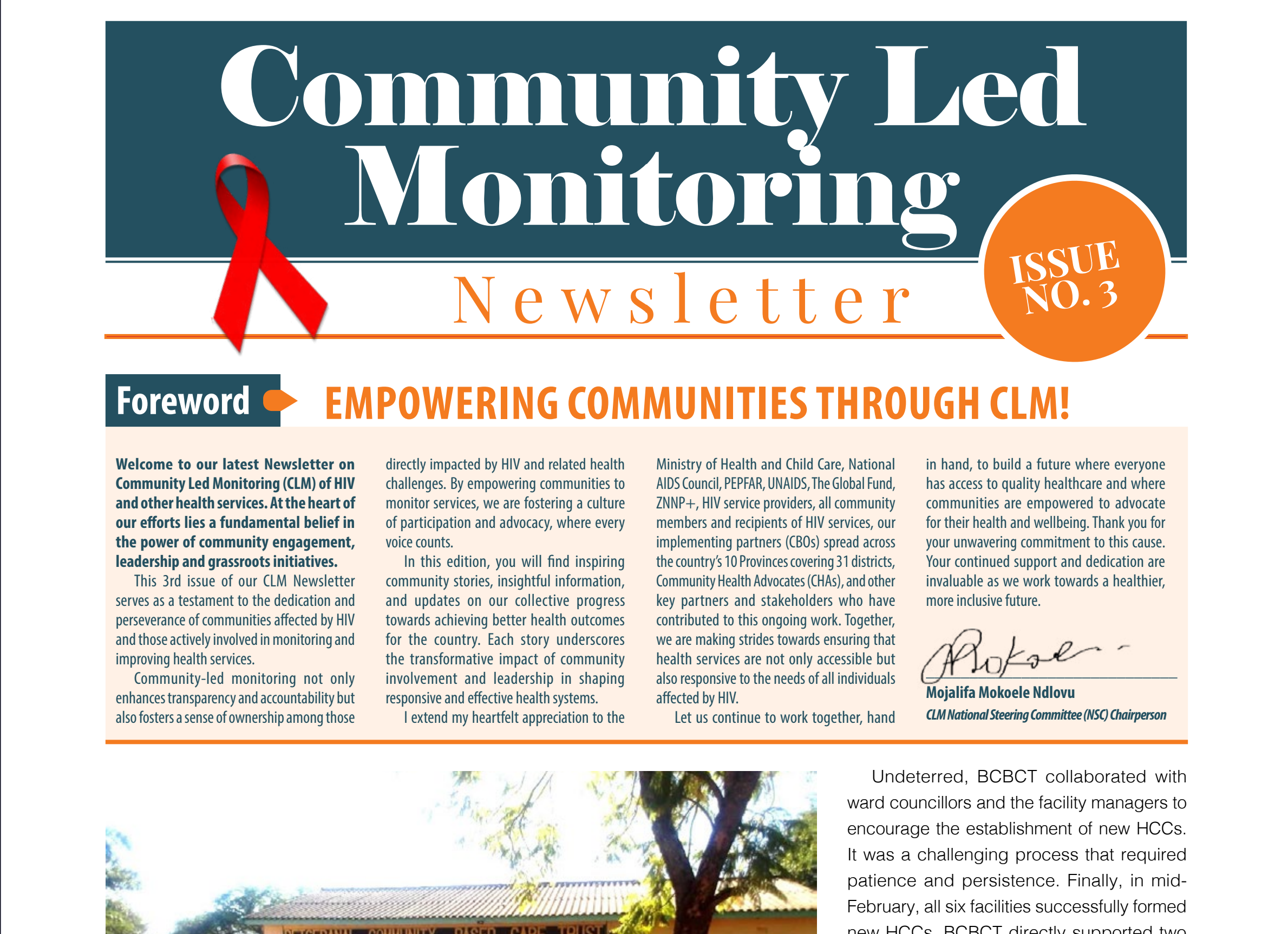
Community Led Monitoring Newsletter
Introduction
Welcome to our latest Newsletter on Community Led Monitoring (CLM) of HIV and other health services. At the heart of our efforts lies a fundamental belief in the power of community engagement, leadership and grassroots initiatives.This 3rd issue of our CLM Newsletter serves as a testament to the dedication and perseverance of communities affected by HIV and those actively involved in monitoring and improving health services.Download PDF document
Download PDF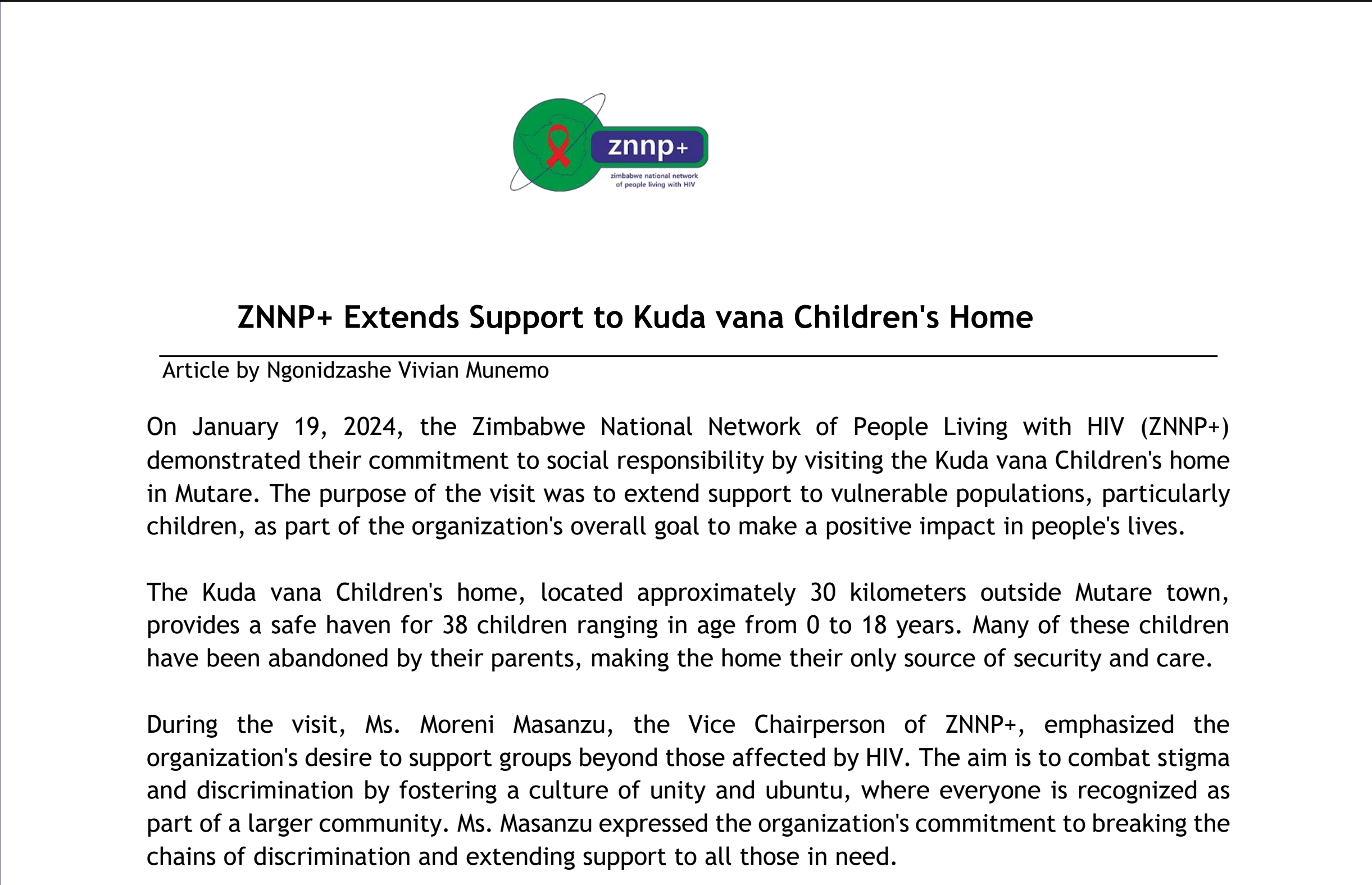
ZNNP+ Extends Support to Kuda vana Children's Home
Introduction
On January 19, 2024, the Zimbabwe National Network of People Living with HIV (ZNNP+) demonstrated their commitment to social responsibility by visiting the Kuda vana Children's home in Mutare. The purpose of the visit was to extend support to vulnerable populations, particularly children, as part of the organization's overall goal to make a positive impact in people's lives. The Kuda vana Children's home, located approximately 30 kilometers outside Mutare town, provides a safe haven for 38 children ranging in age from 0 to 18 years. Many of these children have been abandoned by their parents, making the home their only source of security and care. During the visit, Ms. Moreni Masanzu, the Vice Chairperson of ZNNP+, emphasized the organization's desire to support groups beyond those affected by HIV. The aim is to combat stigma and discrimination by fostering a culture of unity and ubuntu, where everyone is recognized as part of a larger community. Ms. Masanzu expressed the organization's commitment to breaking the chains of discrimination and extending support to all those in need. The children at Kuda vana Children's home were found in good health and well lookedDownload PDF document
Download PDF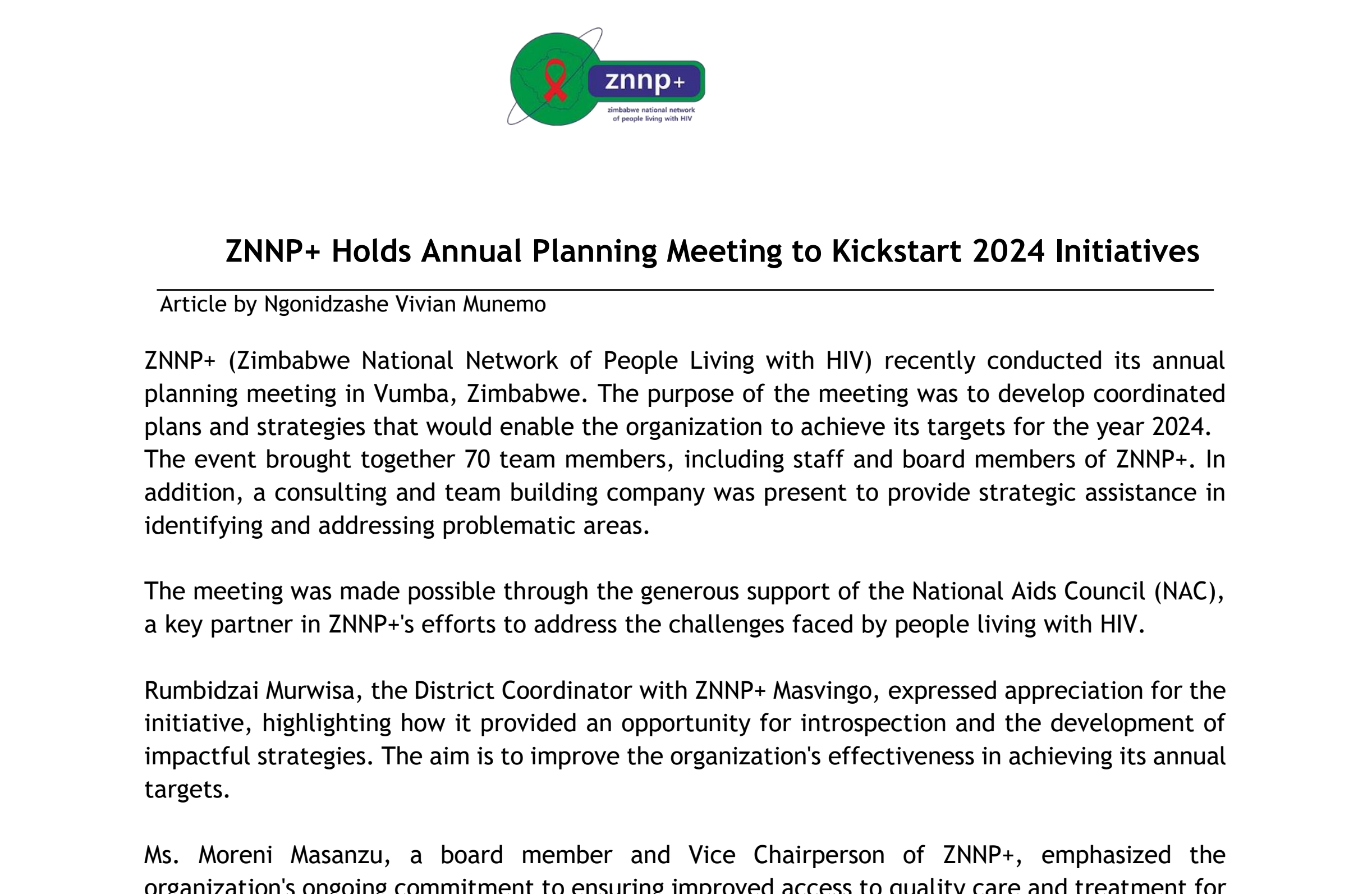
ZNNP+ Holds Annual Planning Meeting to Kickstart 2024 Initiatives
Introduction
ZNNP+ (Zimbabwe National Network of People Living with HIV) recently conducted its annual planning meeting in Vumba, Zimbabwe. The purpose of the meeting was to develop coordinated plans and strategies that would enable the organization to achieve its targets for the year 2024. The event brought together 70 team members, including staff and board members of ZNNP+. In addition, a consulting and team building company was present to provide strategic assistance in identifying and addressing problematic areas. The meeting was made possible through the generous support of the National Aids Council (NAC), a key partner in ZNNP+'s efforts to address the challenges faced by people living with HIV. Rumbidzai Murwisa, the District Coordinator with ZNNP+ Masvingo, expressed appreciation for the initiative, highlighting how it provided an opportunity for introspection and the development of impactful strategies. The aim is to improve the organization's effectiveness in achieving its annual targets.Download PDF document
Download PDF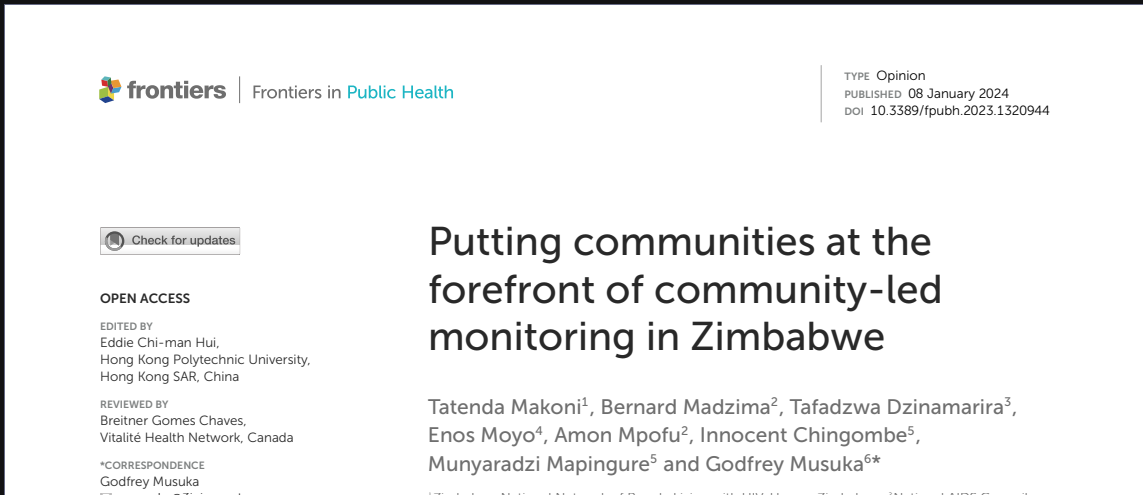
Putting Communities at the forefront of community led monitoring in Zimbabwe...
Introduction
The purpose of this opinion manuscript is to outline the role of community-led organizations in the fight against HIV including the monitoring of HIV-related health services in Zimbabwe. This is in line with the theme of the 2023 World AIDS Day of recognizing and celebrating the achievements of communities.Additionally, the World AIDS Day theme advocates for more resources to enable community-led organizations to unleash their full potential and leadership, including more effective community-led monitoring of the provision of HIV-health services to contribute to the end of AIDS by 2030.
In 2014, The Joint United Nations Programme on HIV/AIDS (UNAIDS) launched the 95-95-95 targets. The aim was to diagnose 95% of all HIV-positive individuals, provide antiretroviral therapy (ART) for 95% of those diagnosed, and achieve viral suppression for 95% of those treated by 2030. Having achieved the 95-95-95 UNAIDS targets with time to spare, Zimbabwe is on the trajectory to ending HIV/AIDS and, in turn, coming closer to achieving its health-related Sustainable Development Goals.Zimbabwe’s success is attributable to factors including, strong political will, and employment of robust and innovative community-level HIV testing, treatment, and care service provision for both the general population and key populations. For example, for key populations, the country has used granular data and HIV risk profiling to ensure that interventions reach those at great risk of HIV acquisition. The country’s approach highlights the necessity of localized targeted interventions that address sociodemographic constraints and geographic heterogeneity in HIV service provision. In our view, HIV community-led monitoring (CLM), an accountability mechanism for the HIV response at different levels, led and implemented by local community-led organizations (CLOs) of people living with HIV (PLHIV), networks of key populations, other affected groups or other community entities, will be a crucial strategy to promote sustainability.
In Zimbabwe, Community lead Monitoring has proved to be an effective mechanism for organized and systematic advocacy for the health and rights of key populations. Engaging peers in service delivery is an effective strategy to reduce stigma among key populations. Obtaining feedback from recipients of care can inform healthcare workers on how to improve the quality of service delivery and address issues such as stigma, that cause low uptake of services and poor health outcomes.Download PDF document
Download PDF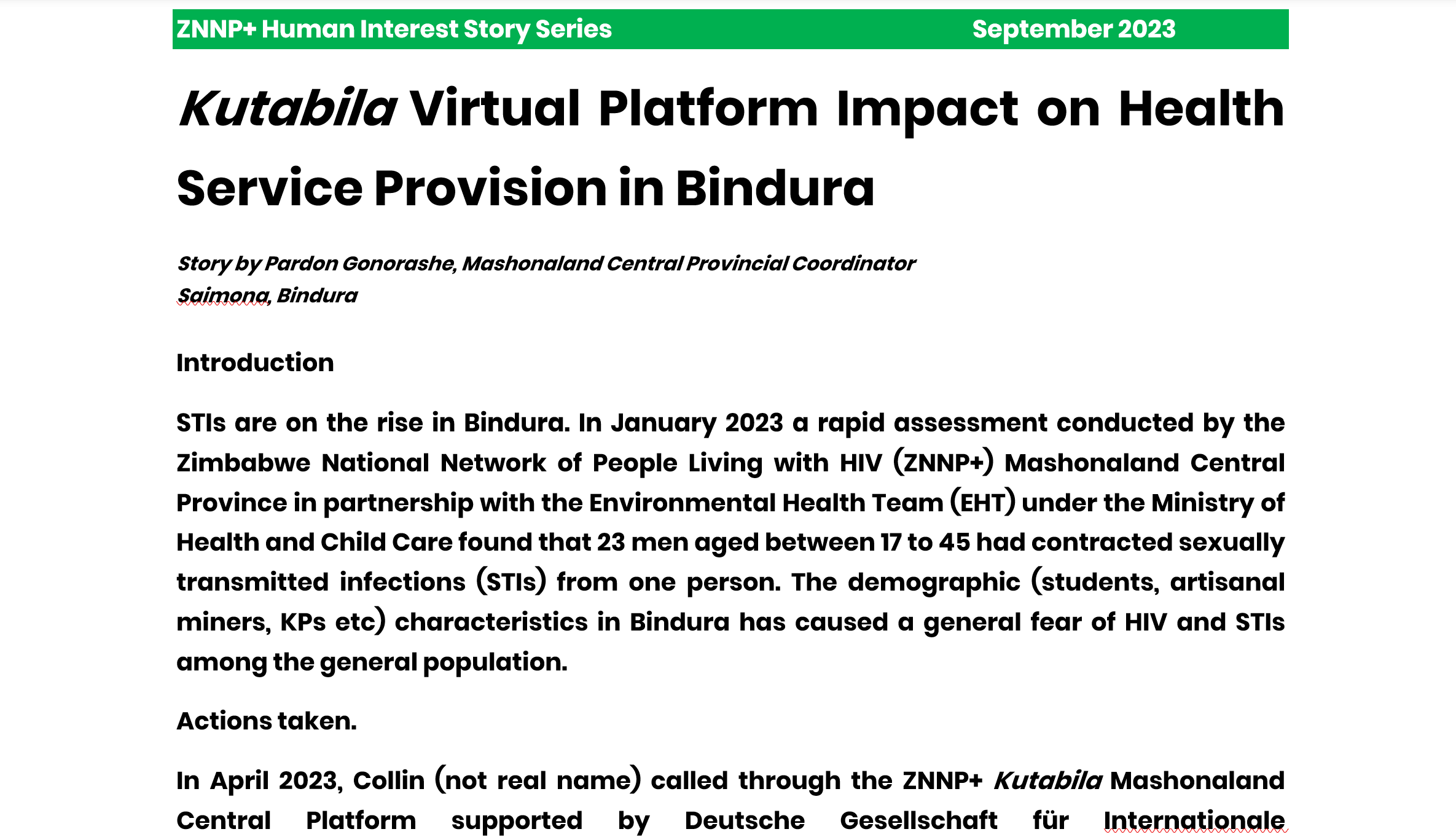
Kutabila Virtual Platform Impact on Health Service Provision in Bindura..
Introduction
STIs are on the rise in Bindura. In January 2023 a rapid assessment conducted by the Zimbabwe National Network of People Living with HIV (ZNNP+) Mashonaland Central Province in partnership with the Environmental Health Team (EHT) under the Ministry of Health and Child Care found that 23 men aged between 17 to 45 had contracted sexually transmitted infections (STIs) from one person. The demographic (students, artisanal miners, KPs etc) characteristics in Bindura has caused a general fear of HIV and STIs among the general population.
Actions taken
In April 2023, Collin (not real name) called through the ZNNP+ Kutabila Mashonaland Central Platform supported by Deutsche Gesellschaft für Internationale Zusammenarbeit GmbH (GIZ) under the Backup Health Project reported that he had an STI that was seemingly difficult to treat. He had been treated with cypromycin, benzathine, cyprofloxacyn, erythromycin, doxyclin but there was no reprieve on the ‘STI’ after visiting Mt Darwin and Concession Hospitals, Chidembo and Madziva Clinics respectively. He was referred to private doctors who also gave him prescriptions and an instruction to visits Bindura Provincial Hospital on a particular date. The caller however did not have the consultation fees to go to Bindura Hospital. The Mashonaland Central Kutabila Platform agent consequently referred Collin to see Doctor E. Nyazika at Trojan Mine clinic who agreed to do a free consultation. The tests conducted revealed that the caller had no STI but a phobia. It highlighted a fear that several people may suffer - venereophobia - which is a fear of venereal diseases.
This condition can medically and psychologically lead to thanatophobia/STI/ paranoia anxiety with somatic symptoms and can lead to high viral loads, and moods outbursts in PLHIV. Positive Outcome and Impact The caller is happy, and the symptoms are slowly disappearing after counselling sessions with support from the Kutabila Platform Integrated Virtual Health Facility (IVHF) Mental Health Specialist. Clinicians and community health agents (CHAs) have taken a leaf on the case as it solved many other unknown cases. Today ZNNP+ continues to conduct health education around safer sex and zero stigma. The virtual platform has reached a level where on- time and on-demand free assistance is received from specialists on standby and a web of physical volunteer foot soldiers around Zimbabwe and beyond. Continuous monitoring of the quality of health services is a key ingredient in communities amplifying a coordinated health financing. From January to August 2023, the Kutabila Virtual Platform has assisted 2,350 community members to access critical services including access to HIV treatment and care services.
Download PDF document
Download PDF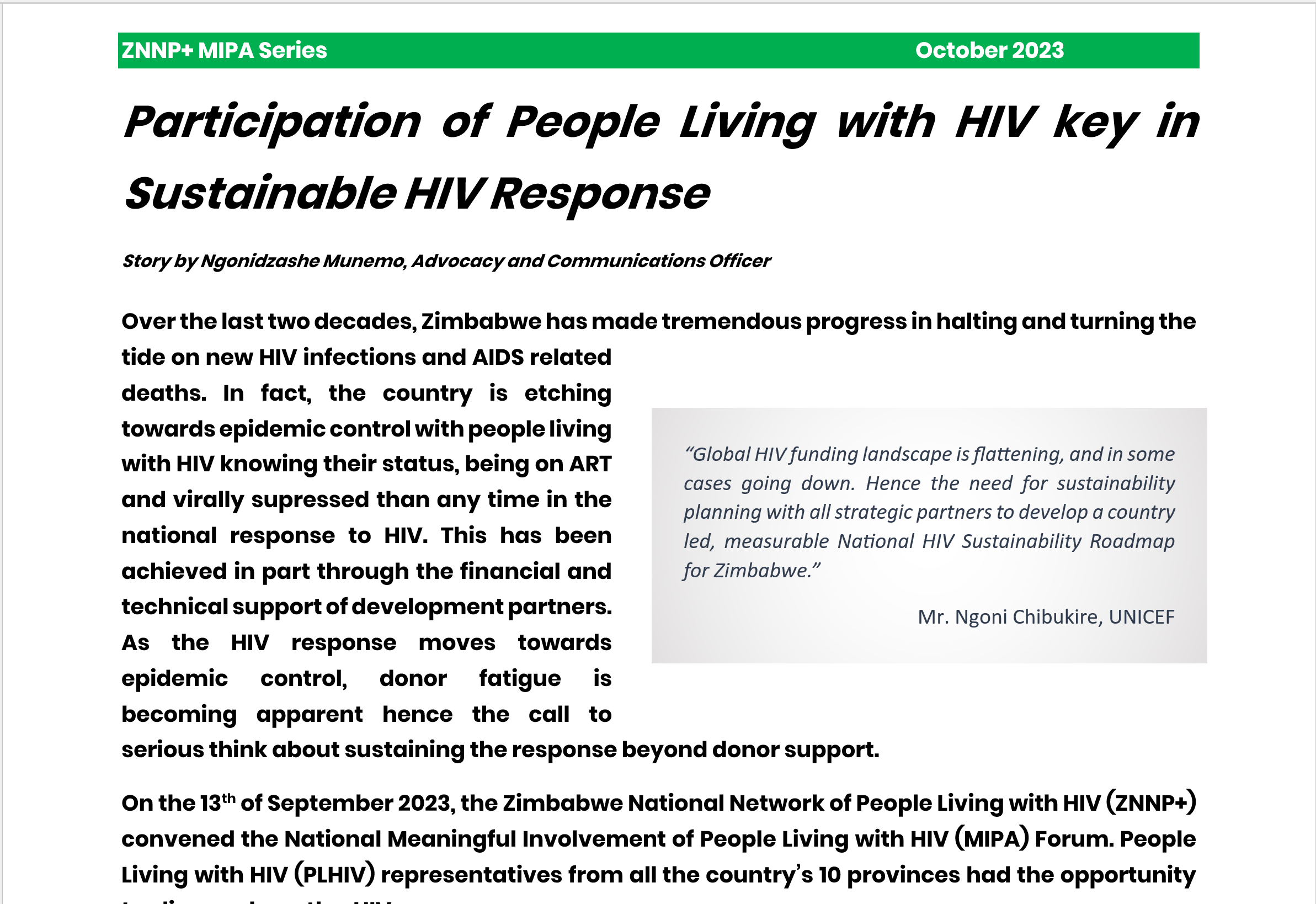
Participation of People Living with HIV key in Sustainable HIV Response.
Over the last two decades, Zimbabwe has made tremendous progress in halting and turning the tide on new HIV infections and AIDS
related deaths. In fact, the country is etching towards epidemic control with people living with HIV knowing their status, being
on ART and virally supressed than any time in the national response to HIV. This has been achieved in part through the financial
and technical support of development partners. As the HIV response moves towards epidemic control, donor fatigue is becoming
apparent hence the call to serious think about sustaining the response beyond donor support
On the 13th of September 2023, the Zimbabwe National Network of People Living with HIV (ZNNP+) convened the National Meaningful
Involvement of People Living with HIV (MIPA) Forum. People Living with HIV (PLHIV) representatives from all the country’s 10
provinces had the opportunity to discuss how the HIV response can attain sustainability in line with the agenda to end AIDS by
2030. The forum meeting, which was held at Fairmile Hotel in Gweru sought to engage PLHIV and proffer suggestions on how the country
can adequately sustain the response. In his presentation, Mr. Ngoni Chibukire of the United Nations International Children’s
Education Fund (UNICEF) Zimbabwe gave a progress update on efforts made to develop the HIV sustainability roadmap for Zimbabwe.
He highlighted that there was considerable donor fatigue and that there was urgent need to develop a clear roadmap to strengthen self-reliance and ensure that the gains made to date are maintained and interventions scaled up to end AIDS by 2030. UNICEF Zimbabwe provided part funding for the National MIPA Forum as part of the consultative process spelt out in the sustainability road map and sought to build consensus among different sectors on the meaning and fundamental pillars of the strategy. The PLHIV representatives were afforded the opportunity to outline their expectations and provide guidance on the process. Representatives unanimously agreed that a concrete sustainability plan was critical to prevent the reversal of gains including the availability of treatment and care services in the country. It was noted that PLHIV stood to lose the most if development partners cut funding with no clear plan of action on the part of the country. This is considering the significant contribution that development partners make to the provision of prevention, treatment (including ART), and care services. The PLHIV representatives re-affirmed the need to increase domestic financing for HIV, budget accountability, monitoring, expenditure tracking and strengthening human rights aspects and community engagement in the HIV response. This they said was a clear pathway to sustainability. The forum resolved to support the development of the sustainability road map with encouragement that communities including PLHIV be involved at all levels of the process. The forum also committed to feeding back to their respective communities.
Download PDF document
Download PDF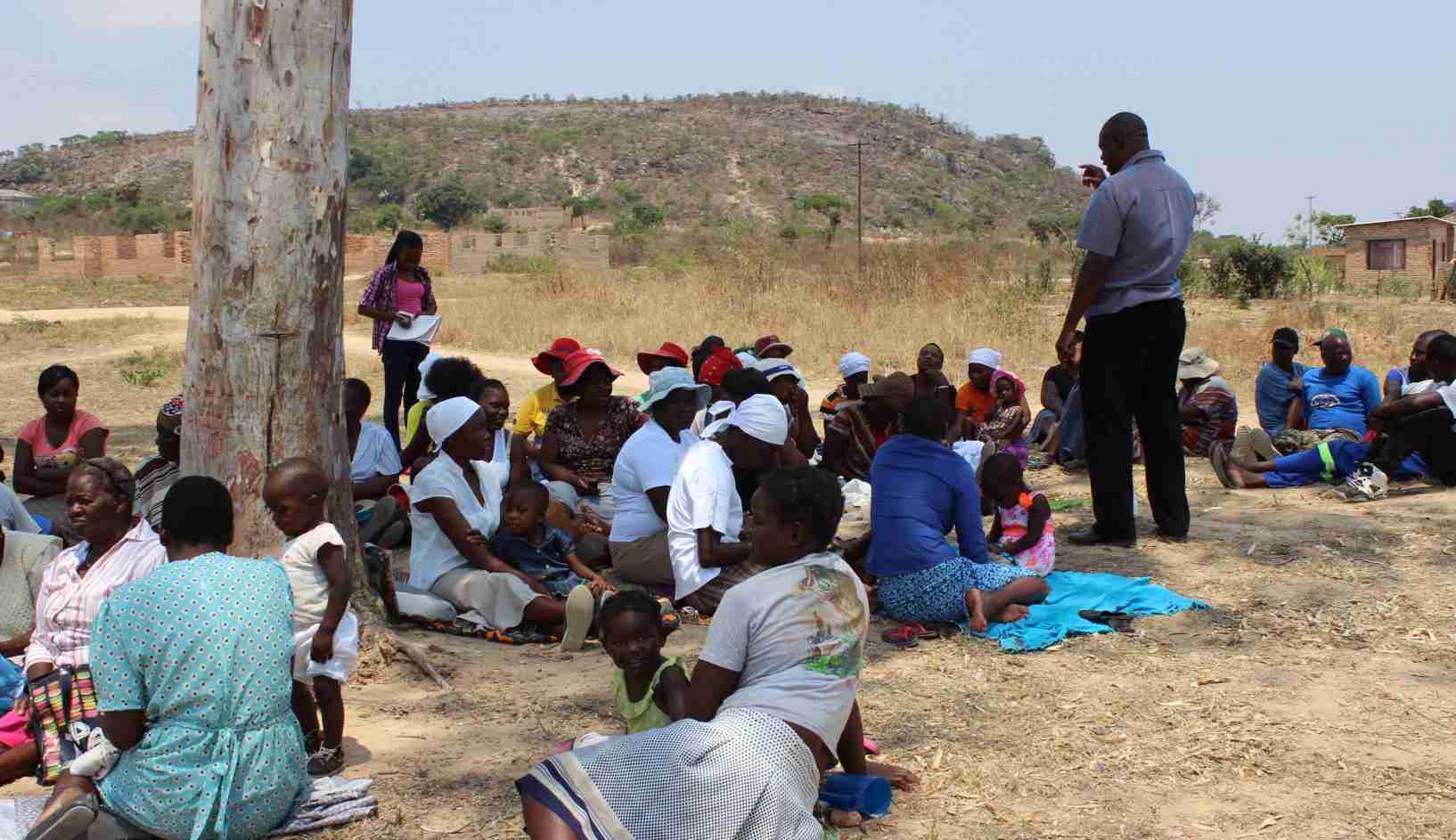
Communities winning against high viral load in Dande..
Community systems strengthening has the greatest potential of empowering people living with HIV (PLHIV) by having programs and activities that are person-centred. Nonetheless, community systems, can only be as strong as the tie that binds them to health institutions for technical backstopping rather than running as parallel structures. Ward 4 of Kapiripiri village, deep in the rural Dande area of Mt Darwin district is served by Kamutsenzere clinic. The village shines for being a community of PLHIV that provides a successful hybrid DSD model – a combined outreach and community ART Refill Group (CARG).
The ward has now achieved zero high viral load, zero AIDS deaths, zero defaulter and zero cervical cancer cases in the 2022- 2023 annual year for all members in CARGs. This feat has not been achieved without obstacles, chief among them being long distances to facilities. Situated 15 km north-west of Kamutsenzere clinic, Ward 4 does not have a clinic for itself despite the Ministry of Health and Child Care policy that every ward should have a primary health facility. People travel for many kilometers to get treatment and for years there were reported cases of defaulting due to long distances. The cost of travel to the clinic is a huge barrier. Viral load was also high due to a combination of poor livelihoods and poor adherence. The Ward reported cases of home deliveries, gender-based violence, child marriages and HIV transmission among newly born children. And this particular ward, in-between other wards was forgotten. Lived testimonies reveal that some of PLHIV in this Ward died in the past trying to walk to the health facilities, including to Karanda Hospital to get their ART refill or receive treatment by adversity, PLHIV organized themselves with the leadership of Sarah Chimoto, the ZNNP+ Ward Chairperson, and District Executive Committee member, who initiated the formation of 12 CARGs in Ward 4 with a total of 160 PLHIV. She engaged Kamutsenzere clinic to start doing outreach ART distribution at Kapiripiri Primary school, central to Ward 4. In the first year, they conducted community dialogues and sensitization workshops on health, health hazards and risks, GBV, substance abuse among others. ZNNP+ team interviewing community member during the event. Mt Darwin, Zimbabwe. ©ZNNP+, 2023 Community members hold-up placards that read Zero Deaths, Zero high viral loads, Zero Cervical cancer, Zero new infections, Zero Defaulters as they celebrate wins in the fight against AHD. Mt Darwin, Zimbabwe. © ZNNP+, 2023. Appreciation also goes to World Vision for funding the transportation of ART and health staff from Karanda Hospital to Kamutsenzere for easy access to PLHIV. ZIM-TTECH also played a key role in the formation of CARGs, and funding of outreach ART distribution. ZNNP+ District and Provincial office provided technical support and guidance. National AIDS Council, in particular DAC Katsande of Mt Darwin provided necessary material and technical support. Today the Ward stands strong as a symbol of resilience demonstrating how PLHIV have endured medication and achieved zero high viral load, zero cervical cancer, zero defaulter, zero new infections, zero STIs in their ward and CARGs. The people feel and look strong, and the system of ART distribution is intact with all quality, validity, and relevance. DSD models have improved disclosure, adherence, and health awareness in Mt Darwin. Working with dedicated partners, the aforementioned stands out as real and practical community-heroes and heroines. More partners are genuinely needed in addressing problems on HIV, including from the non-traditional health partners such as World vision who collaborated from a child-sensitive perspective. The story of Kapiriri can never be sweeter than realising that the health facilities, as allies in community systems strengthening have measured up in assisting communities to plan and execute innovations in ART distribution. We thank you!! Reach us on Kutabila virtual Platform
Download PDF document
Download PDF
Zimbabwe National Network of People Living with HIV presents innovative community led approach at International AIDS Society..
Introduction
The Zimbabwe National Network of People Living with HIV (ZNNP+) left its footprint at the International AIDS Society held in Brisbane, Australia from 23-26 Jul 2023. The organization's oral abstract presentation highlighted the community's successful efforts to identify out-of-care pregnant and breastfeeding mothers, as well as children aged 0-14, using a network of peer supporters known as mentor mothers and young community HIV/AIDS service agents (yCHASAs). The initiative not only brings about a sense of belonging in those receiving care, but it also improves accessibility to current treatment and care information. An appreciative client commented” if it wasn't for ZNNP+, me and my sister's child would have died of AIDS”.
The importance of community-led responses cannot be overstated. While medical advances have made it possible for People living with HIV (PLHIV) to manage their condition effectively, stigma and discrimination continue to be major barriers to accessing care. By empowering communities to take ownership of their own health, ZNNP+ is helping to break down these barriers and ensure that everyone has access to the care they need. Between Jul 2022-September 2022, the mentor mothers referred 1,612 individuals for HIV services. The 52 who had an unknown HIV status got tested and had a positive result. The newly diagnosed were initiated on treatment and linked to ZNNP+ support groups and received mental health counselling from the Metal Health Specialist under Kutabila Platform. During the same period, 48 (3%) of those who had been interrupted in treatment (IIT) were successfully returned to care. 10 survivors of gender-based violence (GBV) were successfully linked to appropriate services.
The success and recognition of ZNNP+'s mentor mother program is a testament to the power of community-led responses to HIV prevention, treatment, and care. By working together, we can make significant strides in the HIV response and ensure that everyone has access to the care and support they need to live healthy and fulfilling lives. Congratulations to community cadres, Ministry of Health, funding partners especially ViiV Healthcare, PEPFAR and OPHID who have strengthened this innovative and effective strategy and made it to be showcased at an international forum, we look forward to seeing more community-led initiatives in the future.
Download PDF document
Download PDF
People Living with HIV Stigma Index 2.0 Report Launched
On the 31st of May 2023, the Zimbabwe National Network of People Living with HIV (ZNNP+) launched the Zimbabwe Stigma Index 2.0. Report in Harare. The Stigma Index is a study that assesses the level and extent of stigma and discrimination experienced by people living with HIV (PLHIV). The research was conducted for and by people living with HIV with tools developed through the international partnership which includes UNAIDS, the Global Network of People Living with HIV (GNP+) and the International Coalition of Women Living with HIV (ICW).
The findings indicated that the overall stigma and discrimination experienced by people living with HIV in Zimbabwe stood at 69.7 percent, compared to 65.5 percent recorded in the 2014 Stigma Index study. According to the findings, stigma was highest in people who identified as Transgender where 97 percent respondents who were interviewed in the survey indicated that they experienced stigma related to their HIV status; 77.7 Sex Workers reported to have experienced stigma and 62 percent of Men who have sex with Men (MSM) also experienced HIV related stigma.
Launching the Zimbabwe Stigma Index Report, Dr John C. Mangwiro, the Deputy Minister of Health and Child Care said the Zimbabwean government was determined to confront and end all forms of stigma and discrimination against PLHIV. Dr Mangwiro added that the high levels of stigma and discrimination against Key populations and PLHIV in general was not good for the national HIV response.
Mr. Makoni, the Zimbabwe National Network of People Living with HIV (ZNNP+) Executive Director said, the Stigma Index report was a critical step in informing the National AIDS response in Zimbabwe. Stigma and discrimination remain as one of the key barriers towards ending AIDS by 2030. The Global AIDS strategy states that inequalities are presented by stigma and discrimination and must be eradicated,” said Mr Makoni. He added that stigma and discrimination against PLHIV can only end if there is acknowledgment of its ubiquitous existence and it must be quantified or measured to inform decision making. Most importantly Multi-sectoral Priority Actions in response to the study findings must be developed and implemented.
TThe Zimbabwe National Network of People Living with HIV (ZNNP+) is the national network of PLHIV that coordinates their interests and rights in Zimbabwe. ZNNP+ led the Stigma Index study with support from partners that include PEPFAR, UNAIDS, USAID, OPHID, ZIM-TTECH, Ministry of Health and Child Care, National AIDS Council, Global Network of People Living with HIV (GNP+), among others. 32 community-based organization (CBOs) of People Living with HIV with presence in the survey districts were involved in the data collection process. The study and launch were made possible with financial support from UNAIDS, PEPFAR, USAID, CDC, OPHID, ZIMTTECH and NAC..
Download PDF document
Download PDF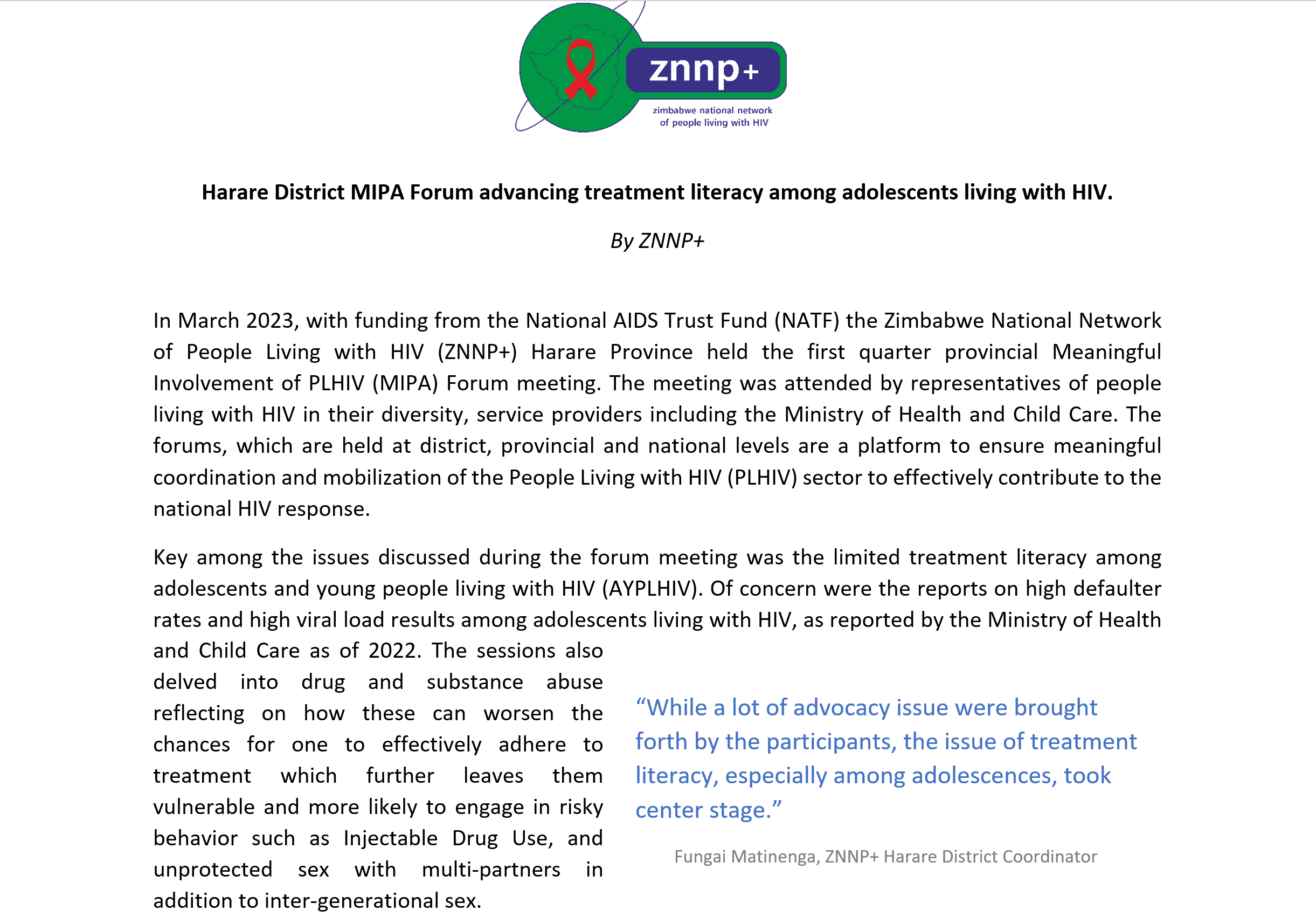
Harare District MIPA Forum advancing treatment literacy among adolescents living with HIV...
With support from the National AIDS Trust Fund through National AIDS Council, ZNNP+ coordinates MIPA Forums in Zimbabwe.
In March 2023, with funding from the National AIDS Trust Fund (NATF) the Zimbabwe National Network of People Living with HIV (ZNNP+) Harare Province held the first quarter provincial Meaningful Involvement of PLHIV (MIPA) Forum meeting. The meeting was attended by representatives of people living with HIV in their diversity, service providers including the Ministry of Health and Child Care. The forums, which are held at district, provincial and national levels are a platform to ensure meaningful coordination and mobilization of the People Living with HIV (PLHIV) sector to effectively contribute to the national HIV response.
Key among the issues discussed during the forum meeting was the limited treatment literacy among adolescents and young people living with HIV (AYPLHIV). Of concern were the reports on high defaulter rates and high viral load results among adolescents living with HIV, as reported by the Ministry of Health and Child Care as of 2022. The sessions also delved into drug and substance abuse reflecting on how these can worsen the chances for one to effectively adhere to treatment which further leaves them vulnerable and more likely to engage in risky behavior such as Injectable Drug Use, and unprotected sex with multi-partners in addition to inter-generational sex.
Some of the suggestions that were raised emphasized continued identification of affected adolescents, enrolment into support groups, as well as promotion of Differentiated Service Delivery (DSD) models that can address the fear of stigmatization among the age group often leading to poor treatment adherence. Key provincial stakeholders including the Ministry of Health and Child Care (MoHCC) and the National AIDS Council (NAC) also took the opportunity to further cascade and encourage PLHIV to strengthen positive behaviors towards increasing adherence to treatment and testing among adolescents. Forum members also agreed to launch an HIV Treatment Literacy campaign targeting AYPLHIV in their communities and engage all stakeholders to support AYPLHIV to reduce the risk of them being interrupted in treatment
The issue of HIV treatment literacy among AYPLHIV is key in ensuring that the country attains the 95, 95, 95 targets and ultimately epidemic control by 2030. According to the UNAIDS Inequalities Report (2020), treatment literacy is a key response strategy to close the gap in HIV treatment and viral load suppression. Meanwhile, treatment literacy is also one of the PEPFAR COP23 priorities and ZNNP+ has been active in promoting treatment literacy across 10 provinces of Zimbabwe.
Download PDF document
Download PDF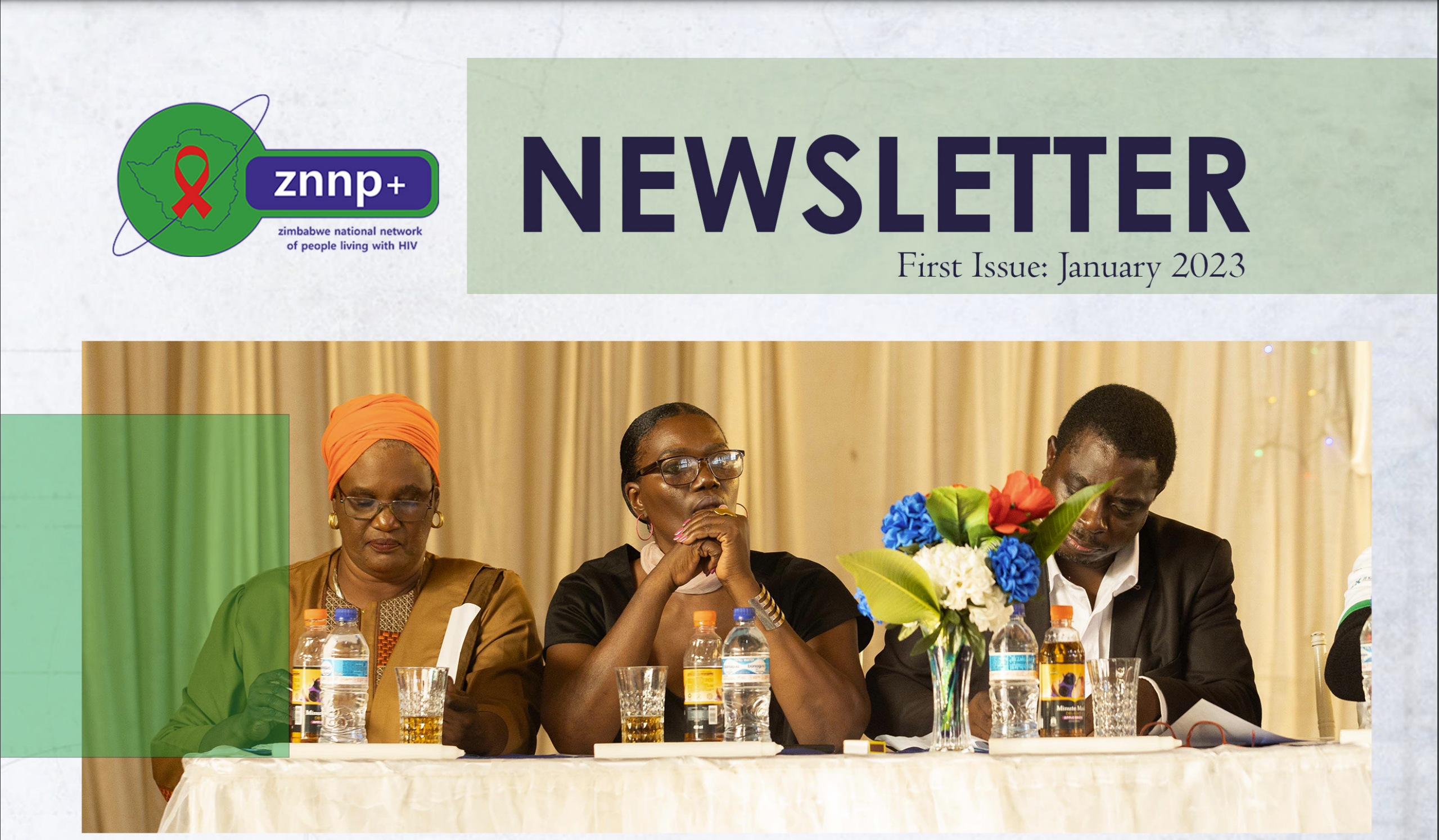
January 2023 Newsletter- ZNNP+ Executive Director invited to accompany VP Chiwenga to Dar es Salaam launch of the Global Alliance to end HIV/ AIDS in Children by 2030.
The ZNNP+ Executive Director, Mr Tatenda Makoni, was invited to be part of the high level delegation representing the People Living with HIV (PI-HIV) sector, to accompany
Zimbabwe Y s Vice President and Honourable Minister of Health and Child Care Rt Gen Dr. C.G.N Chiwenga to attend the launch of the Global Alliance to end AIDS in children by 2030. Hosting the event were UNAIDS, UNICEF, World Health Organization and their partners.
The event took place in Dar es Salaam, Tanzania on the 1st of February, 2023 with the alliance aiming to aggregate efforts to
COVID-19 has made it very apparent that there is need for bold action to stem the growing tide
of gender-based violence cases. Quarantines and social isolation have negatively influenced
mental health, increasing the risk of problematic coping behaviors including family violence
and conflict. The pandemic has exacerbated key risk factors for Violence Against Women and
Girls, such as food shortages, unemployment, economic insecurity, school closures, massive
migration flows and the threat of civil unrest. This has resulted in an alarming increase of
multiple forms of violence against women and girls, especially physical, psychological, sexual
and economic forms of domestic violence fueled by household economic and confined living
conditions due to lockdown and social isolation measures. School closures, financial and food
insecurity have heightened the risk of violence for girls including sexual exploitation,
harassment, and child marriages.
The increase in cases reminds us that there is still more to be done to effectively eradicate all
forms of gendered violence. It is a call to for people living with HIV (PLHIV) in their diversity to
act, redouble efforts and make their voices count. For an effective response to be mounted,
PLHIV join the call for increased funding for proven strategies to prevent gender-based
violence. These include social protection programs that guarantee access to food, water and
education for vulnerable groups particularly AGYW and Key Populations including LGBTI and sex
workers.
In an effort to adapt and provide support to PLHIV, the Zimbabwe National Network of People
Living with HIV (ZNNP+) and Zimbabwe Young Positives (ZY+) has developed early warning
systems and integrated COVID 19 response plans with advocacy for elimination of Gender-based
violence. Some of the best practices adopted include virtual safe spaces with discussions on
GBV, referral systems for GBV victims, psycho- social support sessions and a call centre for
people living with HIV and their communities known as Kutabila Platform. The platform offers
HIV prevention and treatment, SRH, psycho-social support, key population and youth friendly
services and impact mitigation of COVID 19 and HIV.
Download PDF document
Download PDF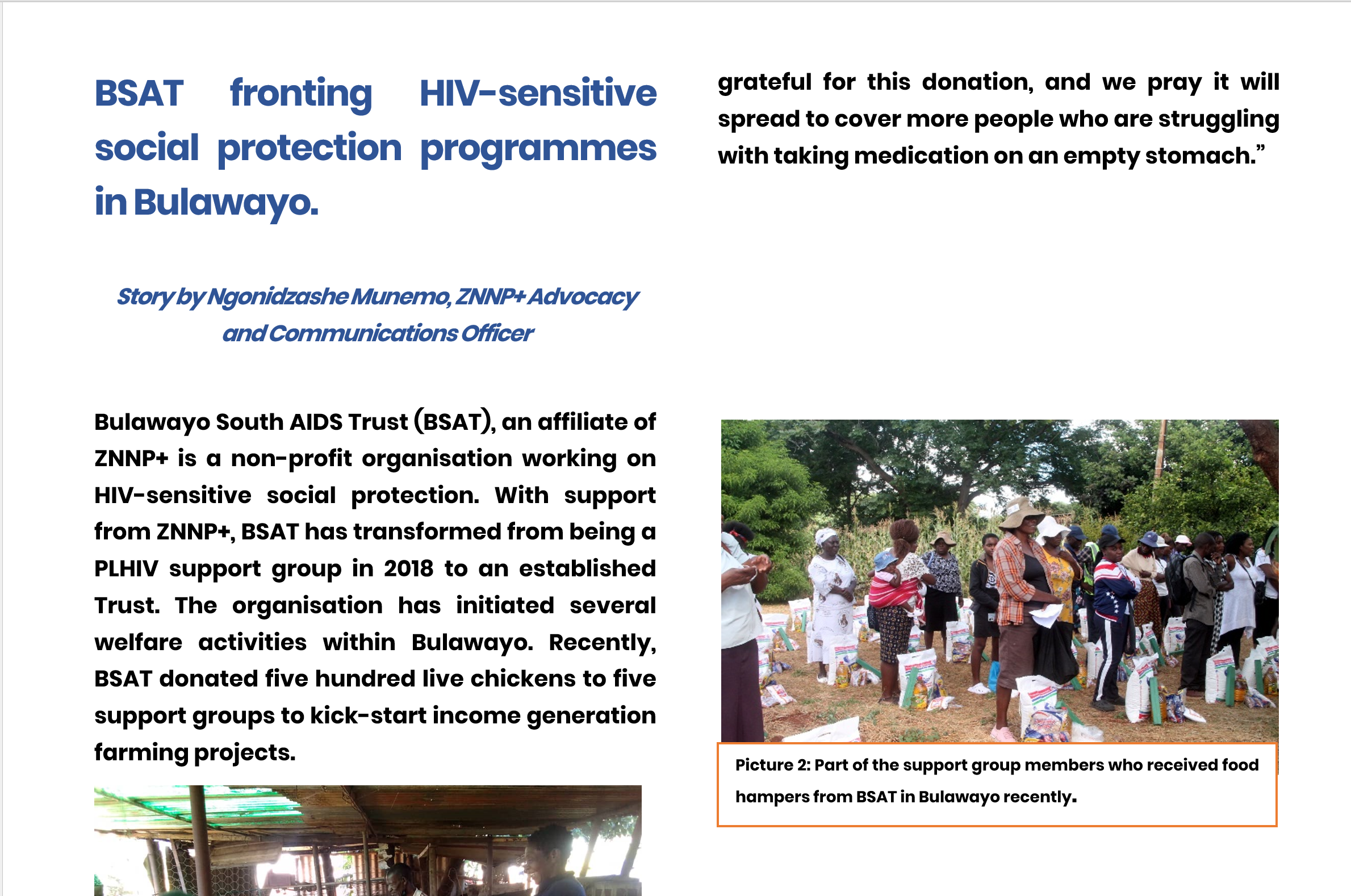
BSAT fronting HIV-sensitive social protection programmes in Bulawayo...
Bulawayo South AIDS Trust (BSAT), an affiliate of ZNNP+ is a non-profit organisation working on HIV-sensitive social protection. With support from ZNNP+, BSAT has transformed from being a PLHIV support group in 2018 to an established Trust. The organisation has initiated several welfare activities within Bulawayo. Recently, BSAT donated five hundred live chickens to five support groups to kick-start income generation farming projects
On the 11th of March 2023, and with support from Franciscan Aid, BSAT handed food hampers to more than 250 people who are living with HIV in the City of Bulawayo. “This donation will feed 250 families and help improve nutrition outcomes among PLHIV” said the BSA Trust Chairperson, Ms. Sibahle. One of the recipients of BSAT support, Ms. Pamela Sibanda said, “We are grateful for this donation, and we pray it will spread to cover more people who are struggling with taking medication on an empty stomach.”
Nutrition ranks among the top five issues received through the PLHIV real-time Kutabila virtual Platform. For increases in health and HIV outcomes, interventions must also include intentional nutrition-specific programming. And just as the BSAT Chairperson placed it, we are expecting similar people-centered precision prevention responses to be supported if we are to realize the Global HIV targets by 2030
Download PDF document
Download PDF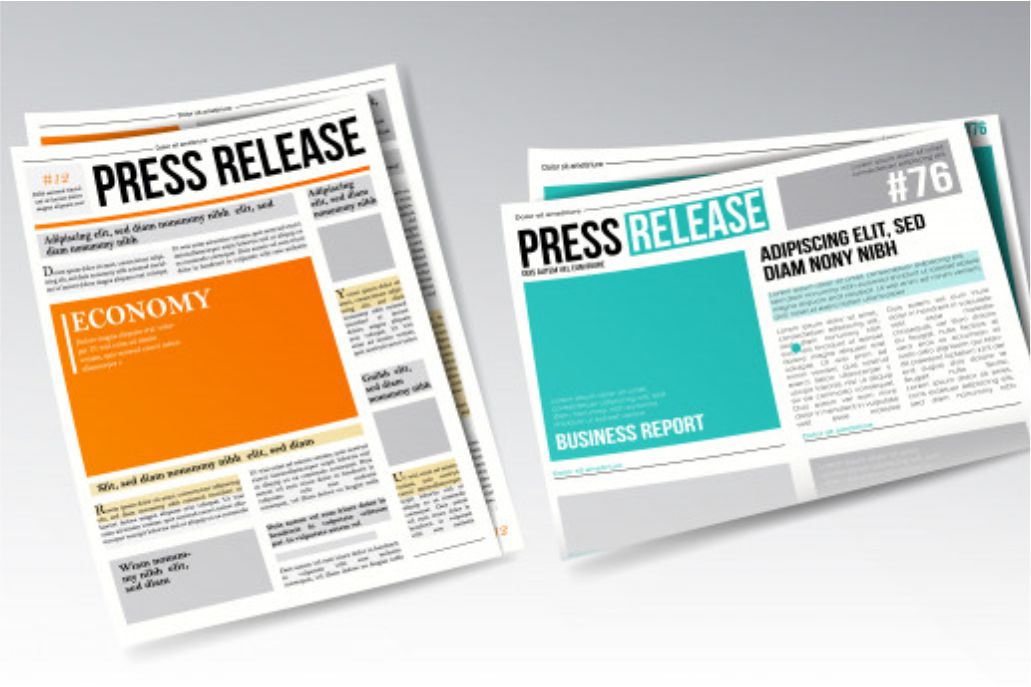
People Living with HIV Statement on World AIDS Day 2022.
TThe Zimbabwe National Network of People Living with HIV (ZNNP+) join the rest of the world
in commemorating the 2022 International World AIDS Day running under the theme “Equalize”.
We remember those who passed on due to AIDS but also take stock of what has been done as
we plan for the 1.3 million Zimbabwean living with HIV. We thank the government and other
stakeholders that have ensured PLHIV live a quality and productive life through provision of life
saving ARVs, and psycho-social support.
This year’s World AIDS Day comes at a time when we are coming out of COVID-19 pandemic
which over the last 2 years has impacted on access to critical services by people living with HIV
and communities in general. COVID-19 has taught us that now more than any time there is need
to redouble our efforts to ensure that we reach epidemic control and guarantee quality HIV
prevention, treatment and care services for people living with HIV in Zimbabwe. We can only
achieve our desired 95, 95, 95 targets if we address the structural and social barriers that
militate against people living with HIV accessing HIV testing, treatment, and diagnostic
services.
New HIV infections are occurring at an alarming rate largely among our young people,
especially adolescent girls and young women while more men are dying most due to AIDS related
causes. We can only address the inequalities that sponsor the surge in the new HIV infections
and AIDS related deaths as expressed in the UNAIDS Ending Inequalities. End AIDS. Global AIDS
Strategy for 2021 to 2026, if there is concerted effort and investment from all stakeholders.
As PLHIV, we have and will continue to play an important role in reaching out to our peers and
supporting those in care and treatment. This year, we call upon all government, donors,
partners, and people living with HIV to work together to address the following:
1. Rolling out comprehensive community led stigma reduction initiatives as outlined in the
2022 Stigma Index. The 2022 Stigma Index showed that 69.7% of surveyed people living
with HIV experienced stigma and discrimination which is an increase from the 2014 study
(65%).
The increase in cases reminds us that there is still more to be done to effectively eradicate all
forms of gendered violence. It is a call to for people living with HIV (PLHIV) in their diversity to
act, redouble efforts and make their voices count. For an effective response to be mounted,
PLHIV join the call for increased funding for proven strategies to prevent gender-based
violence. These include social protection programs that guarantee access to food, water and
education for vulnerable groups particularly AGYW and Key Populations including LGBTI and sex
workers.
2. Increasing domestic financing of the healthcare sector in line with the Abuja Declaration
target of 15% of the total national budget. This will ensure sustainability and guaranteed
access to HIV, TB treatment, care and support services for people living with HIV.
3. Increasing HRH support at facility level, staff establishment at most facilities is below
50%.
4. Increasing access to Advanced HIV Disease management services, given the increase in
the number of people living with HIV being diagnosed with Advanced HIV Disease.
5. Removal of user fees by their various names and functions which continue to promote
unequal access to services by people living with HIV.
6. Ensure the provision of ART for people living with HIV up to 6 months for those stable
on treatment. This will ensure reduced pressure on the already strained healthcare
facilities.
7. Roll out more efficacious and long-acting HIV treatment for people living with HIV
including the dolutegravir and the long acting injectable cabotegravir recommended by
WHO. This will ensure greater adherence and treatment outcomes.
8. Integration of management non-communicable diseases like mental health, diabetes,
high blood pressure with ART programs, since these conditions are on the increase
among older PLHIV as we live longer and age with the disease.
In conclusion, we have an opportunity to successfully end AIDS by 2030. This can be achieved
through the contribution of people living with HIV in the national response. Although
progress has been made, there is need for collective effort in addressing key social and
structural barriers that have the potential of putting the national HIV off-track.
Download PDF document
Download PDF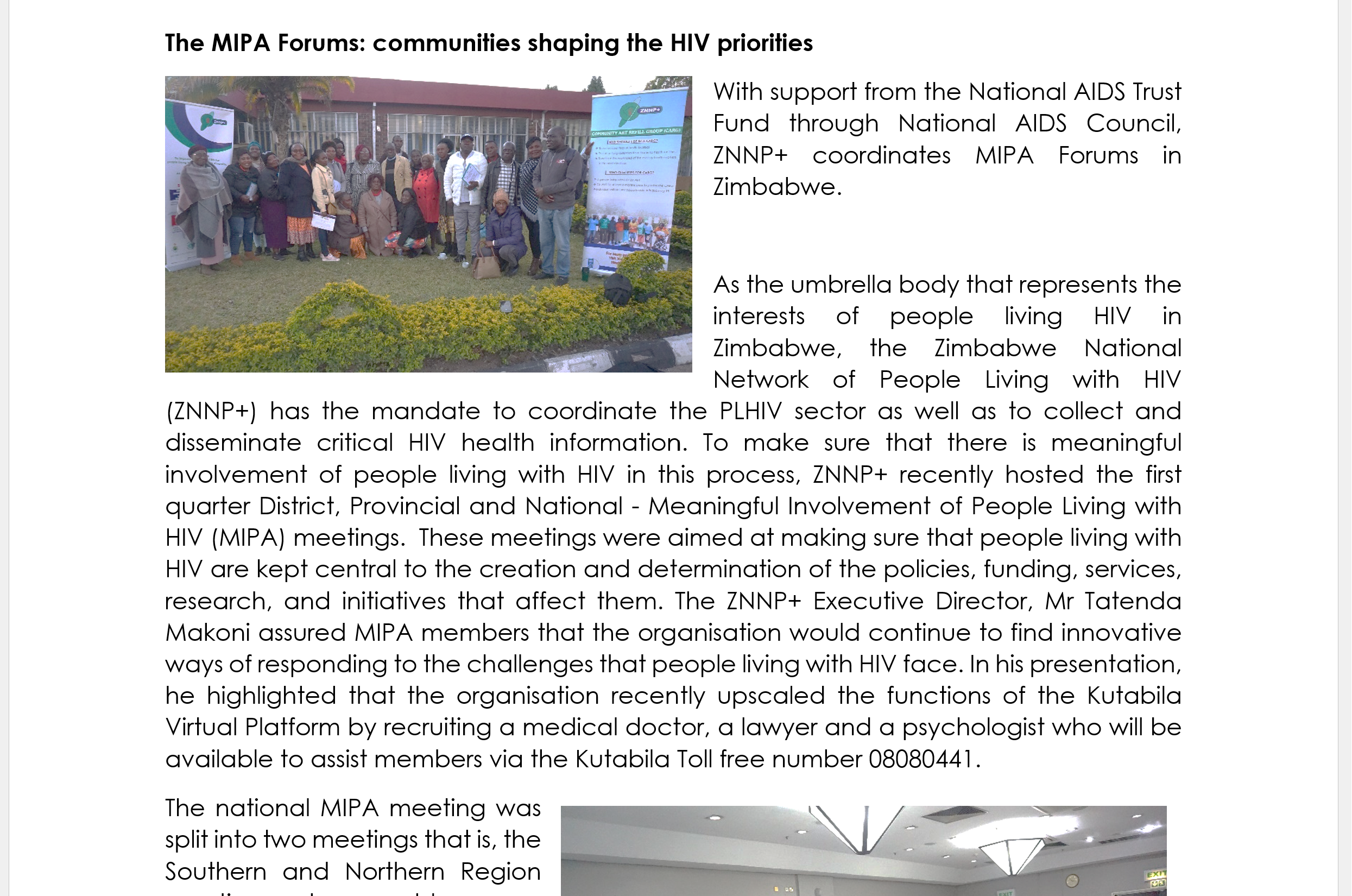
The MIPA Forums: communities shaping the HIV priorities...
With support from the National AIDS Trust Fund through National AIDS Council, ZNNP+ coordinates MIPA Forums in Zimbabwe.
As the umbrella body that represents the interests of people living HIV in Zimbabwe, the Zimbabwe National Network of People Living with HIV (ZNNP+) has the mandate to coordinate the PLHIV sector as well as to collect and disseminate critical HIV health information. To make sure that there is meaningful involvement of people living with HIV in this process, ZNNP+ recently hosted the first quarter District, Provincial and National - Meaningful Involvement of People Living with HIV (MIPA) meetings. These meetings were aimed at making sure that people living with HIV are kept central to the creation and determination of the policies, funding, services, research, and initiatives that affect them. The ZNNP+ Executive Director, Mr Tatenda Makoni assured MIPA members that the organisation would continue to find innovative ways of responding to the challenges that people living with HIV face. In his presentation, he highlighted that the organisation recently upscaled the functions of the Kutabila Virtual Platform by recruiting a medical doctor, a lawyer and a psychologist who will be available to assist members via the Kutabila Toll free number 08080441.
The national MIPA meeting was split into two meetings that is, the Southern and Northern Region meetings to enable easy coordination of the processes as well as to make sure that the organisation adheres to the COVID-19 social distancing regulations. The Southern MIPA meeting was held in Gweru at Regency Hotel Fairmile on the 7th of June and the Northern MIPA meeting was held in Harare at Holiday Inn on the 9th of June 2022. Both meetings were well attended and very fruitful deliberations on how to improve the lives of people living with HIV were held. It is quite encouraging to note that the PLHIV sector has a safe space to deliberate on issues that affect the lives of people living with HIV especially with regards to access to treatment. MIPA meetings also enable the organisation to get information on what is happening at community level to make sure that community systems are strengthened for the benefit of the PLHIV sector. In his opening remarks, Dr Madzima the National Aids Council Chief Executive Officer stated that “the sector should always respect each other despite their origin or background and focus on issues that help to build strong membership that is able to advocate for improved HIV services in order to contribute meaningfully towards the 95 95 95 national HIV Strategic goals.”
Download PDF document
Download PDF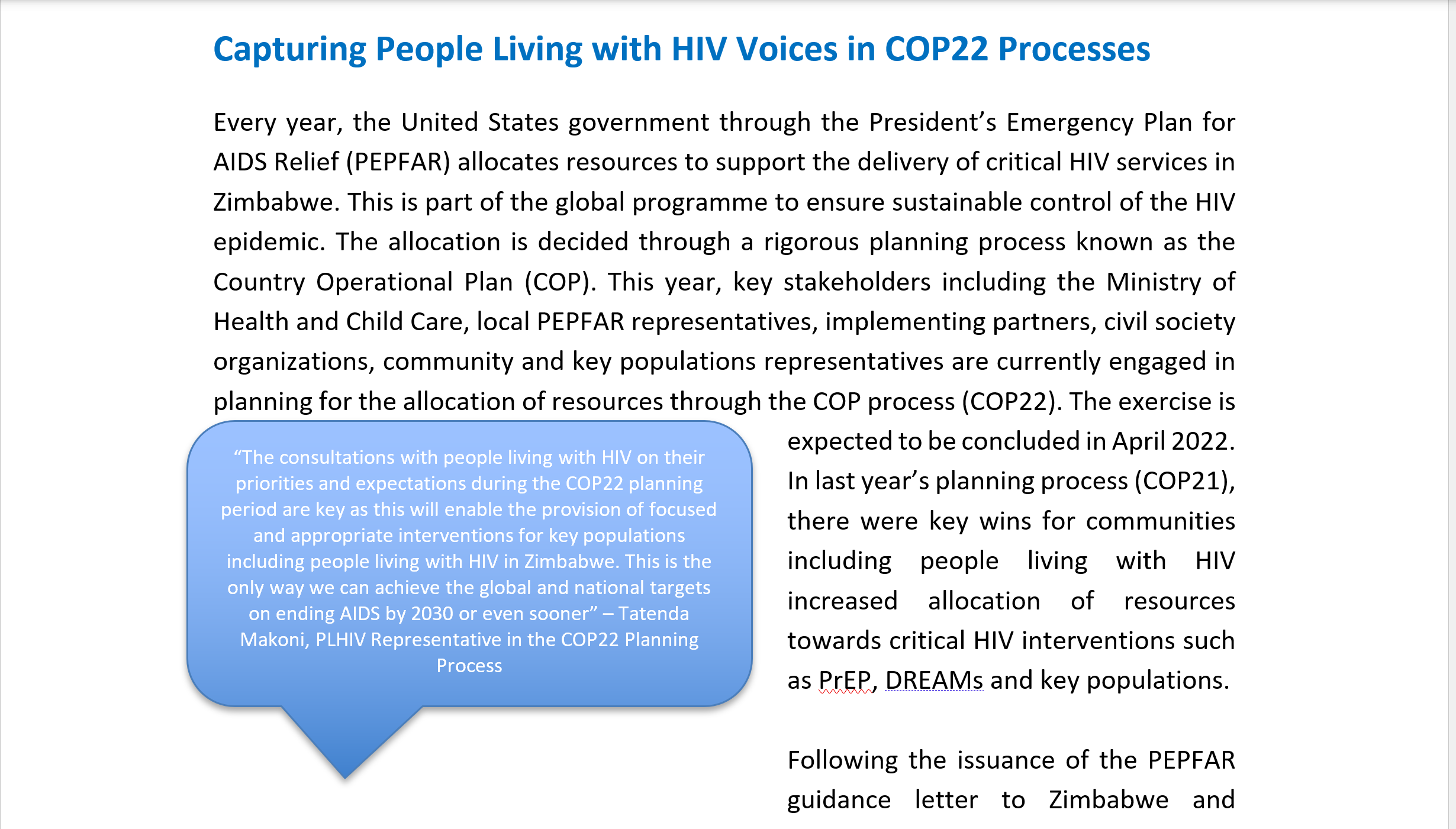
Capturing People Living with HIV Voices in COP22 Processes.
Every year, the United States government through the President’s Emergency Plan for AIDS Relief (PEPFAR) allocates resources
to support the delivery of critical HIV services in Zimbabwe. This is part of the global programme to ensure
sustainable control of the HIV epidemic. The allocation is decided through a rigorous planning process known
as the Country Operational Plan (COP). This year, key stakeholders including the Ministry of Health and Child Care, local
PEPFAR representatives, implementing partners, civil society organizations, community and key populations
representatives are currently engaged in planning for the allocation of resources through the COP process
(COP22). The exercise is
expected to be concluded in April 2022. In last year’s planning process (COP21), there were key wins for communities including
people living with HIV increased allocation of resources towards critical HIV interventions such as PrEP, DREAMs and key populations.
Following the issuance of the PEPFAR guidance letter to Zimbabwe and extensive data driven technical discussions, the Zimbabwe National
Network of People Living with HIV (ZNNP+) is currently (March 2022) engaging communities of people living with HIV in all the 10 provinces
to discuss their priorities and expectations for COP22. These priorities will feed into the broader community priorities and position on COP22.
According to ZNNP+ Executive Director and PLHIV Representative to the COP22 Process, “The consultations with people living with HIV on their
priorities and expectations during the COP22 planning period are key as this will enable the provision of focused and appropriate interventions
for key populations including people living with HIV in Zimbabwe. This is the only way we can achieve the global and national targets on ending
AIDS by 2020 or even sooner.” The voices of people living with HIV are essential in ensuring that the country attains the desired outcomes through PEPFAR support.
Download PDF document
Download PDF
The U.S. and ZNNP+ Announce PEPFAR Heroes Award
In recognition of its 18th anniversary in Zimbabwe, the U.S. President’s Emergency Plan for AIDS Relief (PEPFAR) has announced the 2021 PEPFAR Heroes Award for outstanding individuals who have made a meaningful contribution towards Zimbabwe’s response to HIV and AIDS over the past 18 years.
PEPFAR has partnered with the Zimbabwe Network of People Living with HIV (ZNNP+) in a nationwide call for nominations of PEPFAR Heroes from around the country with a deadline of June 30. Eventually, 12 Heroes will receive the award during the World AIDS Day commemorations in December and the 2022 PEPFAR calendar will feature their work.
PEPFAR heroes -- men and women -- have gone above and beyond the call of duty to create an enabling environment for people living with HIV to access health related services. The winners of the award will receive a cash prize and will continue to work as advocates throughout 2022 and to make a difference in their communities as PEPFAR Heroes.
“The journeys of these unsung heroes and heroines have been long and difficult but, the good news is, we continue to build on what they started to improve programming especially as we try to close gaps in HIV prevention and treatment,” says Mr. Makoni, the Executive Director of ZNNP+.
Want to nominate a PEPFAR Hero? Click this link and say 'Hi' to the ZNNP+ Kutabila WhatsApp Bot (0734349479) or complete the online nomination form at https://ee.humanitarianresponse.info/preview/5v4xk1S9. Alternatively, send nomination forms to info@znnp.org copying nyakwendeG@state.gov by June 30, 2021. Please find the detailed nomination guidelines on the U.S. Embassy website at: https://zw.usembassy.gov and www.znnp.org.
Over the past 18 years, PEPFAR has contributed more than $1.3 billion to the HIV response in Zimbabwe through a comprehensive package of prevention, treatment, and health support services. Today, more than 1.2 million Zimbabweans living with HIV receive lifesaving treatment.
For more information, contact PEPFAR Communications Specialist Gay Nyakwende at nyakwendeG@state.gov .

People Living with HIV Statement at the End of 16 Days of Activism against Gender-Based Violence
Today marks the end of 16 Days of Activism Against Gender-Based Violence. This years’
campaign ran under the theme; “Orange the World: Fund, Respond, Prevent, Collect!”.
Violence in all its forms is one of the structural drivers that increases the risk of HIV infection
particularly for adolescent girls and young women (AGYW). AGYW and Key Populations living
with HIV are not spared from violence.
COVID-19 has made it very apparent that there is need for bold action to stem the growing tide
of gender-based violence cases. Quarantines and social isolation have negatively influenced
mental health, increasing the risk of problematic coping behaviors including family violence
and conflict. The pandemic has exacerbated key risk factors for Violence Against Women and
Girls, such as food shortages, unemployment, economic insecurity, school closures, massive
migration flows and the threat of civil unrest. This has resulted in an alarming increase of
multiple forms of violence against women and girls, especially physical, psychological, sexual
and economic forms of domestic violence fueled by household economic and confined living
conditions due to lockdown and social isolation measures. School closures, financial and food
insecurity have heightened the risk of violence for girls including sexual exploitation,
harassment, and child marriages.
The increase in cases reminds us that there is still more to be done to effectively eradicate all
forms of gendered violence. It is a call to for people living with HIV (PLHIV) in their diversity to
act, redouble efforts and make their voices count. For an effective response to be mounted,
PLHIV join the call for increased funding for proven strategies to prevent gender-based
violence. These include social protection programs that guarantee access to food, water and
education for vulnerable groups particularly AGYW and Key Populations including LGBTI and sex
workers.
In an effort to adapt and provide support to PLHIV, the Zimbabwe National Network of People
Living with HIV (ZNNP+) and Zimbabwe Young Positives (ZY+) has developed early warning
systems and integrated COVID 19 response plans with advocacy for elimination of Gender-based
violence. Some of the best practices adopted include virtual safe spaces with discussions on
GBV, referral systems for GBV victims, psycho- social support sessions and a call centre for
people living with HIV and their communities known as Kutabila Platform. The platform offers
HIV prevention and treatment, SRH, psycho-social support, key population and youth friendly
services and impact mitigation of COVID 19 and HIV.
Download PDF document
Download PDF
People Living with HIV Statement at the End of 16 Days of Activism against Gender-Based Violence
Today marks the end of 16 Days of Activism Against Gender-Based Violence. This years’
campaign ran under the theme; “Orange the World: Fund, Respond, Prevent, Collect!”.
Violence in all its forms is one of the structural drivers that increases the risk of HIV infection
particularly for adolescent girls and young women (AGYW). AGYW and Key Populations living
with HIV are not spared from violence.
COVID-19 has made it very apparent that there is need for bold action to stem the growing tide
of gender-based violence cases. Quarantines and social isolation have negatively influenced
mental health, increasing the risk of problematic coping behaviors including family violence
and conflict. The pandemic has exacerbated key risk factors for Violence Against Women and
Girls, such as food shortages, unemployment, economic insecurity, school closures, massive
migration flows and the threat of civil unrest. This has resulted in an alarming increase of
multiple forms of violence against women and girls, especially physical, psychological, sexual
and economic forms of domestic violence fueled by household economic and confined living
conditions due to lockdown and social isolation measures. School closures, financial and food
insecurity have heightened the risk of violence for girls including sexual exploitation,
harassment, and child marriages.
The increase in cases reminds us that there is still more to be done to effectively eradicate all
forms of gendered violence. It is a call to for people living with HIV (PLHIV) in their diversity to
act, redouble efforts and make their voices count. For an effective response to be mounted,
PLHIV join the call for increased funding for proven strategies to prevent gender-based
violence. These include social protection programs that guarantee access to food, water and
education for vulnerable groups particularly AGYW and Key Populations including LGBTI and sex
workers.
In an effort to adapt and provide support to PLHIV, the Zimbabwe National Network of People
Living with HIV (ZNNP+) and Zimbabwe Young Positives (ZY+) has developed early warning
systems and integrated COVID 19 response plans with advocacy for elimination of Gender-based
violence. Some of the best practices adopted include virtual safe spaces with discussions on
GBV, referral systems for GBV victims, psycho- social support sessions and a call centre for
people living with HIV and their communities known as Kutabila Platform. The platform offers
HIV prevention and treatment, SRH, psycho-social support, key population and youth friendly
services and impact mitigation of COVID 19 and HIV.
Download PDF document
Download PDF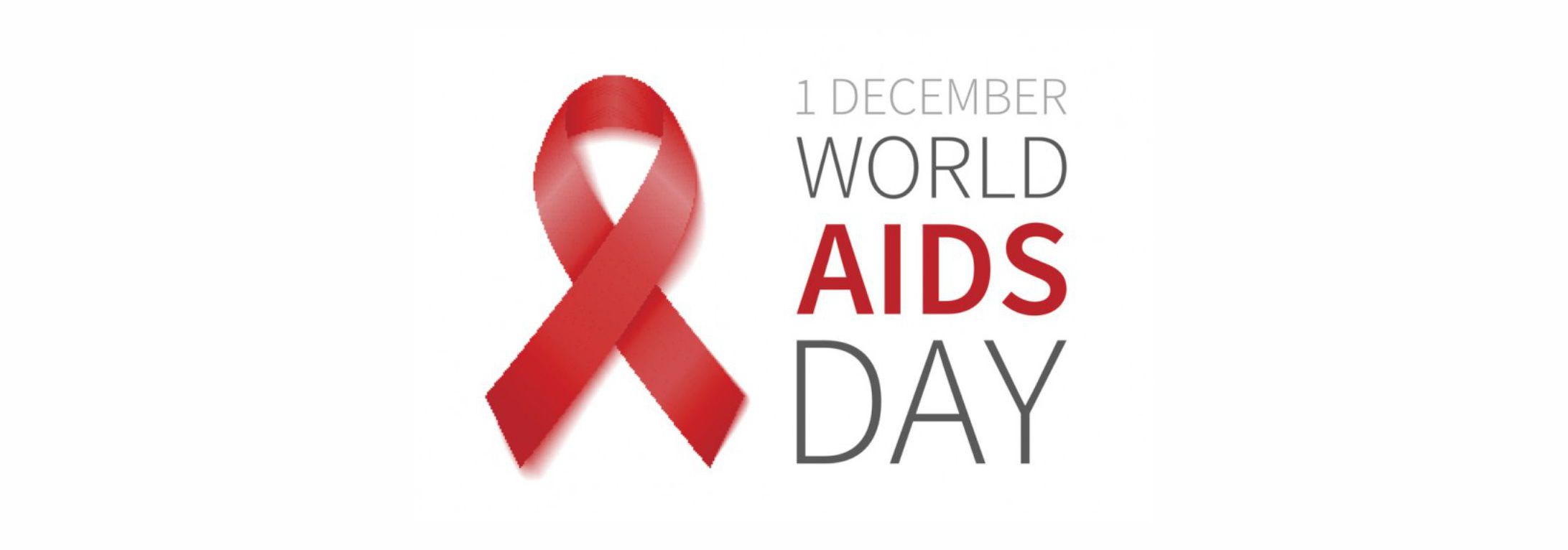
People Living with HIV Statement on 2020 World AIDS Day
The Zimbabwe National Network of People Living with HIV (ZNNP+) and Zimbabwe Young Positives (ZY+) join
the rest of the world in commemorating the 2020 International World AIDS Day running under the theme
“Global Solidarity, Shared Responsibility”. As people living with HIV, we are in solidarity with the rest of the
world in fighting the global health threat posed by COVID-19. We equally share the responsibility to act and
effectively deal with this health emergency which has impacted on every aspect of society.
As the COVID-19 pandemic continues to unfold, it has become apparent that there is need to introspect and
take definitive action to ensure that the gains made in the global and national response to HIV are not lost.
COVID-19 has taught us that now more than any time there is need to double our efforts to ensure that we
reach epidemic control and guarantee quality HIV prevention, treatment and care services for people living
with HIV in Zimbabwe. We can only achieve our desired 95, 95, 95 targets if we address the structural and
social barriers that militate against people living with HIV accessing HIV testing, treatment and diagnostic
services. We call upon all stakeholders including the government, donors, policy makers, civil society
organizations, community based organizations, religious and traditional leaders and communities to work
together to address the existing barriers. Some of the barriers include user fees, punitive policies such as
section 79 of the Criminal Code and Codification Act which criminalizes HIV transmission, stigma and
discrimination, avoidable ART drug shortages and stock-outs, sexual and gender based violence and harmful
religious and cultural practices.
To effectively end the epidemic, we need to focus on cost effective solutions which include the full roll- out
of differentiated models of care including multi-month dispensing of ART for a minimum of six month for
stable clients, increased viral load coverage, localization of the production of anti-retroviral medicines and
diagnostic equipment including point of care machines and the repealing of punitive and retrogressive laws
and policies.
As COVID-19 continues to take its toll, we urge all people living with HIV to remain vigilant and continue to
comply with the all set regulations on containing the virus.
See article in the PEPFAR September E-Newsletter on page 4.
Download PDF Article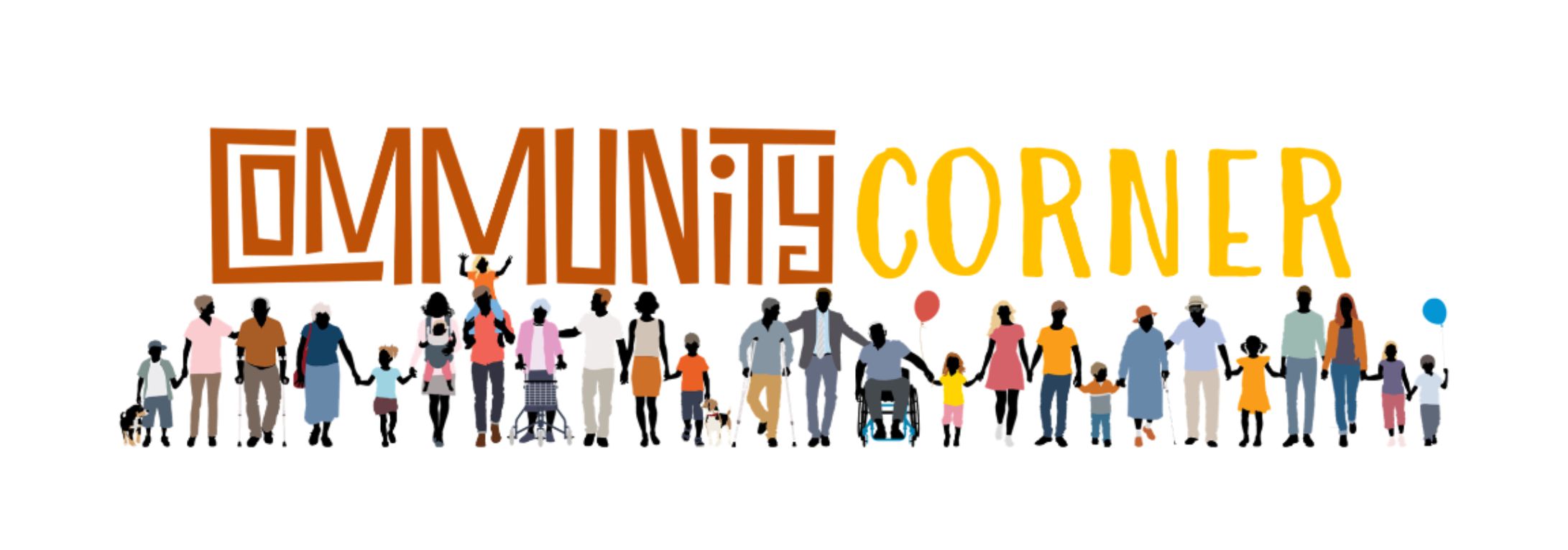
ZNNP+ Launches the First-Ever PLHIV Virtual Platform
The Zimbabwe National Network of People Living with HIV (ZNNP+) on 1st July 2020 launched the People Living with HIV (PLHIV) virtual platform call centre called Kutabila, covering Zimbabwe’s ten provinces plus a dedicated line for Youth and Key Populations. The call centre was made possible with financial and technical support from the UNAIDS and National AIDS Council of Zimbabwe. A virtual platform provides a trusted connection between the umbrella network and recipients of care. It is a PLHIV-led response to the emergency brought about by COVID-19 and lessons learnt from previous disasters and emergencies such as the Chingwizi and Idai floods that severely affected PLHIV’s access to health services.
The virtual platform is a communication, surveillance, and data collection system aimed at improving PLHIV engagement, informing service providers and fostering positive change in the HIV response. The platform can send alerts to PLHIV, collect real-time responses and subsequently publish gathered data. The platform will gather important health analytics to gain insight into client satisfaction, visibility of implementing partners, trends and patterns of HIV-related support and issues such as multi-month dispensing of antiretroviral medicines, access to viral load testing, opportunities and access to HIV prevention and management. Organizations in the HIV response can ride-on this platform and track their specific program indicators.
IIn its first month, the busy platform has been influential in addressing the first and second delays in seeking care as it connected vulnerable groups of PLHIV to health facilities at no cost. It has shown immense potential towards improving health worker and community relations, relaying timely health advice, ensuring prompt response to emergencies and facilitation of timely referrals.
See article in the PEPFAR September E-Newsletter on page 4.
Download Full Newsletter Article
Raramo ineTariro nePEPFAR
Greetings Everyone,
Welcome to the third edition of Rararamo ineTariro nePEPFAR, the PEPFAR Zimbabwe e-newsletter. The last six months have been trying and exhausting for everyone working in the health sector – almost no one has been spared the effects of the fast-spreading COVID-19 disease. Predictably, many of our PEPFAR-supported programs in Zimbabwe have taken a hit. Still, PEPFAR’s quarter three results (April-June) show remarkable increases in HIV treatment linkage and retention, as well as record-high viral load coverage and suppression. We would like to dedicate this issue of the newsletter to our implementing partners who have found the tenacity to protect gains made in the response to HIV. Their efforts are nothing short of heroic.
Quarter three was also the first time the PEPFAR program has collected and reported the national treatment current (TX_CURR) figure for Zimbabwe. A total of 1,149,354 adults and children are currently receiving ART, representing 85% coverage of the total population living with HIV. This remarkable reporting achievement allows for more robust monitoring of the progress made towards epidemic control.
In this issue, we also hear from civil society in a special recurring feature called “Community Corner.” We learn that the Zimbabwe National Network of People Living with HIV (ZNNP+) has launched a call center for PLHIV called Kutabila covering Zimbabwe’s ten provinces plus a dedicated line for Youth and Key Populations. The call center is proving to be effective in relaying timely health advice, ensuring prompt response to emergencies, and facilitating timely referrals.
Finally, we are happy to welcome two new members of the USG team in Harare: Dr. Michael Melchior is the new Country Director for the Centers for Disease Control and Prevention (CDC Zimbabwe), and Mr. Art Brown is the new USAID Mission Director.
As always, thank you for your contributions and continued support of this newsletter. If you have contributions for future editions please submit them to our Communications Specialist, Gay Nyakwende (NyakwendeG@state.gov).
Remember to wear masks, practice social distancing, and stay safe. Remember to wear masks, practice social distancing, and stay safe.
Best Wishes,
Kristine F. Clark
PEPFAR Country Coordinator
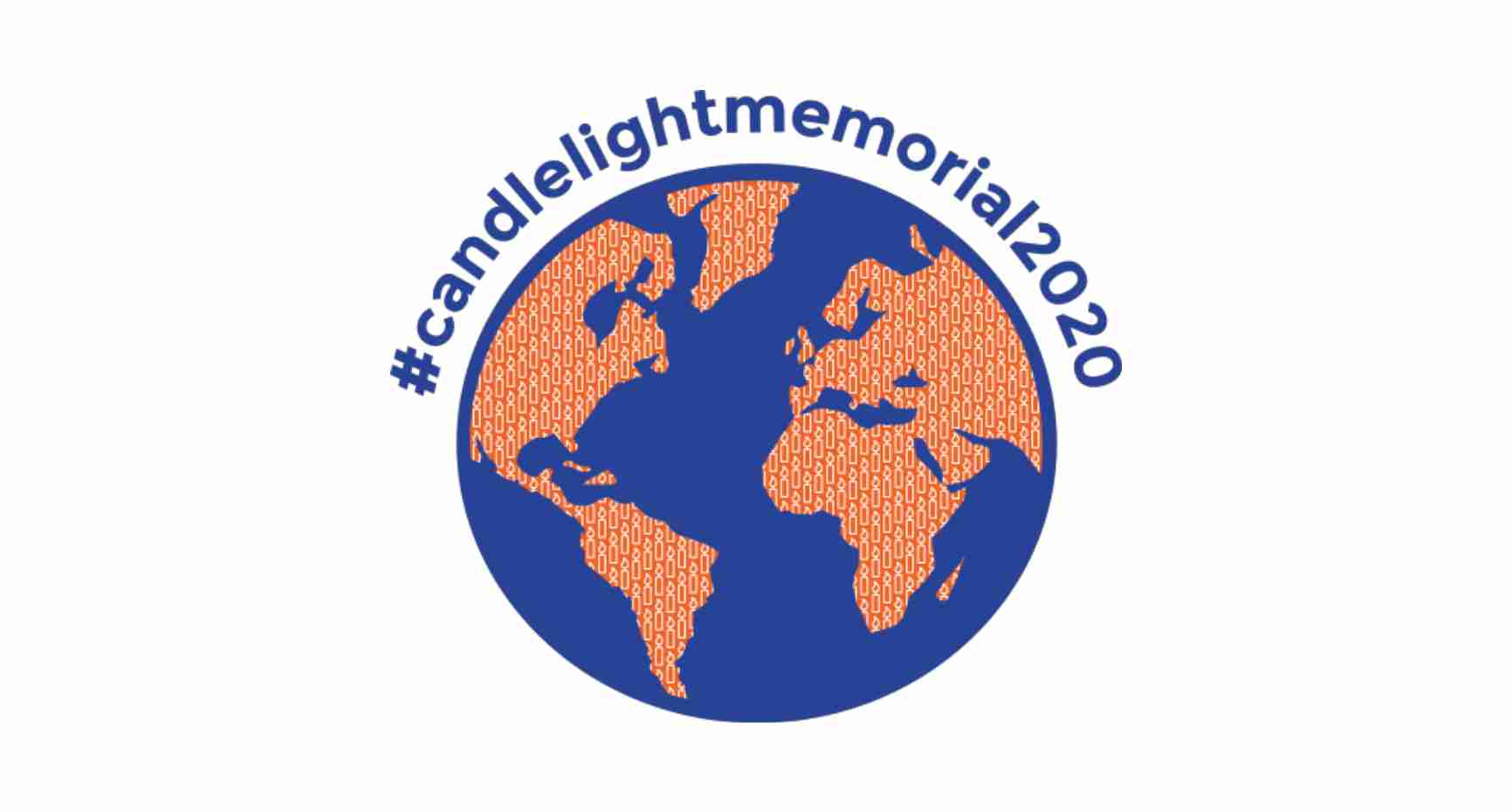
PLHIV Statement on the 2020 International Candlelight Memorial
Zimbabwe National Network of People living with HIV (ZNNP+) and Zimbabwe Young Positives (ZY+) join the rest of the world in commemorating The International AIDS Candlelight Memorial running under the theme “We remember – We take action – We live beyond HIV”. As the world deals with the coronavirus pandemic we must support our families and communities to stay healthy. People living with HIV have a role to play beyond the HIV response and this year’s memorial is an opportunity for all PLHIV to act in solidarity with the world as we deal with COVID-19 and its impact on all spheres of our lives.
This year we encourage you to mark this day in your homes. Join the virtual Candlelight Memorial by holding a vigil from your home. Light a candle or use your mobile phone flashlight.
- #candlelightmemorial2020
- #weremember
- #wetakeaction
- #welivebeyondHIV
For more information contact
Zimbabwe National Network of People Living with HIV (ZNNP+)
Tel: +263 774151276;
Facebook: Zimbabwe National Network of People Living with HIV;
Twitter: @znnpinfo;
Email: info@znnp.org;
Website: www.znnp.org;
Press Contact: +263 (0) 776 906 943 (T. Mwareka)
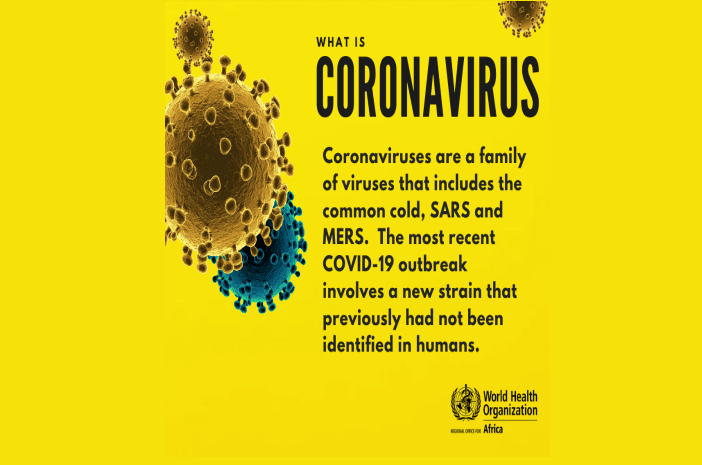
ZNNP+ calls for a coordinated response to counter the socio-economic impact of the Coronavirus on People Living with HIV*
COVID-19 is a severe public health emergency for all citizens and societies with infections. It is also a major health and socio-economic shock to People Living with HIV (PLHIV).
COVID-19 is a severe public health emergency for all citizens and societies with infections. It is also a major health and socio-economic shock to People Living with HIV (PLHIV).
The HIV population is aging, and nearly half are over 50. Those with low CD4 T-cell counts or indicating advanced immune suppression are at greatest risk
The Zimbabwe National Network of People Living with HIV (ZNNP+) and Zimbabwe Young
Positives (ZY+) calls upon the government and other stakeholders to take the COVID-19 threat
to public health seriously and proactively prepare communities. It is clear that people need to
practice maximum hygiene standards and as well as reduce social contact inorder to reduce
the spread of the virus. This means that for PLHIV their frequency of visiting health facilities
has also to be minimized to avoid large gatherings during refill dates. We call for the Ministry
of Health and Child Care to have a plan in place for multi-month prescriptions and manage
the supply chain of the medicines effectively to avoid stock-outs and as well as limit frequent
visits to health facilities.
We sincerely hope that no deaths out of COVID-19 will be recorded in Zimbabwe and we call
upon the responsible citizens of this country to remain SANITIZED
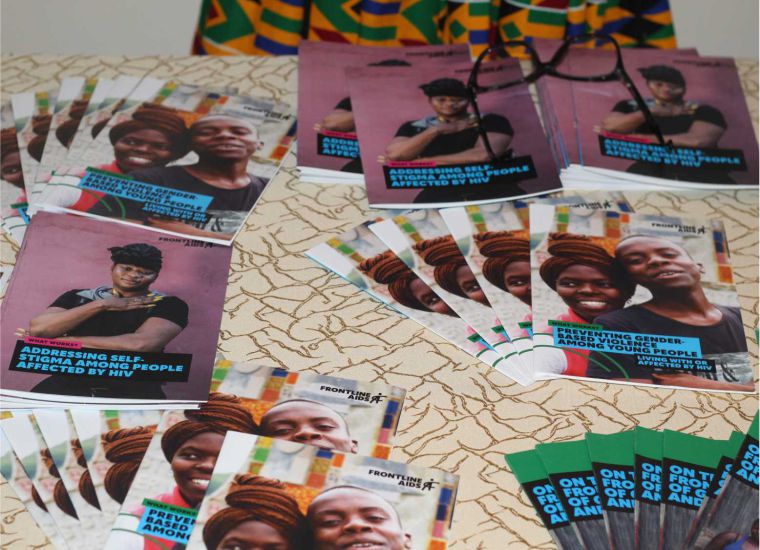
Update To PLHIV On The Status Of Access To Treatment
Zimbabwe National Network of People Living with HIV (ZNNP+), Zimbabwe Young Positives (ZY+), Activists and other representatives of people living with HIV in Zimbabwe submitted a petition to parliament on the need for the Government of Zimbabwe to raise the more than US$6 million required as a commitment to the Global Fund in order to access US$400 million. The petition also highlighted the challenges in access to treatment by PLHIV in Zimbabwe especially second line drugs as well as expired drugs being dispensed to PLHIV. The petition was submitted on the 4th of July 2019 and discussed on the 18th of July 2019.
People living with HIV in these affected areas have not been spared from the devastating effects of Cyclone Idai. Road and bridges that provide the much needed access to health facilities for people living with HIV have either been destroyed or are impassable. Many others have also lost their anti-retroviral (ARV) medication during the flooding while thousands more have lost their access to regular meals; a critical component of the antiretroviral therapy (ART) programme.
We continue to receive calls from people living with HIV (PLHIV) who are failing to access ARV medicines particularly the second line drug Abacavir and are being referred to private pharmacies to purchase the drugs that cost ZWL$300 for a month supply (and fluctuates with the USD rate) which is beyond reach of many. This may inevitably lead to a high number of defaulters and subsequently a higher resistance rate. The higher defaulter and resistance rates may lead to a higher number of people being switched to the 3rd line regimen which is even more expensive and likely to exert more pressure on our resource constrained government.
ZNNP+ has since engaged the National Pharmaceutical Company (NatPharm) on the availability of second line medicines in Zimbabwe. They have confirmed the shortage and have indicated that they have since started distributing supplies to various Health facilities and highlighted that the situation will improve in the coming weeks. Spot checks were also conducted at various Opportunistic Infection (OI) sites within Harare and there was indeed proof that they had started receiving the stocks that were in short supply.
As a follow-up to the petition submitted to parliament, ZNNP+, ZY+ and Advocacy Core Team (ACT) will be meeting the Parliamentary Portfolio committee on Health and the Senate Committee on AIDS on a date to be advised in order to present our key issues and map way forward. Our five key issues to be discussed with the committees are as follows;
- Drug Shortages.
- Issuing of expired medicines.
- Availing of USD 6million Counterpart funding commitment under Global Fund.
- Availing of foreign currency to National Aids Trust Fund so as to enable procurement of ARVs.
- Local Production and utilization of TRIPS Flexibilities for sustainable access to HIV treatment.
ZNNP+ and ZY+ thank all PLHIV who have shared valuable information on the current drug shortages and is also appealing to the same to continue to share information regarding the availability of ARVs within their constituencies. Other views or concerns you feels should be presented to the parliamentarians also feel free to share through the below contacts.
We will keep the sector updated on the outcomes of our engagements. In the meantime ZNNP+ is continuously engaging NatPharm to ensure improved availability of drugs within all health centres.
Respect for people’s lives, we cannot afford to lose any one of us to preventable or avoidable situations.
Keep the Promise, Act Now!
For more information contact
Zimbabwe National Network of People Living with HIV (ZNNP+)
Tel: +263 774151276;
Facebook: Zimbabwe National Network of People Living with HIV;
Twitter: @znnpinfo;
Email: info@znnp.org;
Website: www.znnp.org;
Whatsapp: 0772288941 (E. Chamisa)

Call to Action: People Living with HIV in Zimbabwe Need Your Help!
Today, People Living with HIV (PLHIV), networks and civil society organizations gather at the Africa Unity Square in Harare to deliberate on the key challenges affecting PLHIV and to petition the government through parliament to act with greater urgency on a pending health crisis.
Never before has there been a need for all stakeholders to come together in defence of the gains realized from the over 30 years of sustained investment by government, UN Agencies, donors, the private sector, civil society organizations, community based organizations and PLHIV in Zimbabwe.
Exactly 20 years ago, PLHIV marched from Marondera to the same parliament to petition the government to make available a fund that would guarantee access to HIV treatment for all who required it. This led to the creation of the National AIDS Trust Fund (NATF) which is administered by the National AIDS Council of Zimbabwe. Today, we return to same location to remind the government to Keep the Promise and Act Now to avert a crisis that threatens the lives of over 1.4 million PLHIV in Zimbabwe particularly adolescents and young people living with HIV.
We call upon the government to urgently address the following pertinent issues:
- The continued and continuous shortages and stock outs being experienced throughout the country particularly the second line drugs.
- The continued disbursement of expired drugs to PLHIV. Despite the scientific assurances the mere fact that PLHIV are being asked to take expired drugs has psychological implications and consequently has adverse effects on adherence to treatment.
- None disbursement of US$6 million towards the Global Fund replenishment. The country is being asked to commit US$6 million while we will receive more than US$400 million from the Global Fund under the current country grant. More than 70% of PLHIV receive their treatment from resources provided by the Global Fund. If the Global Fund withdraws its support, the result will be disastrous for us all.
- Availing foreign currency for the procurement of ARVs through the National AIDS Trust Fund (NATF). The National AIDS Council has over Z$20 million siting in its account which it cannot use as they have not been allocated foreign currency for the2 procurement of its share of ARVs. Additionally, due to the 22 February monetary policy change which saw the Zimbabwe Dollar being delinked from the United States Dollar, the amount held by NAC is now far less than required for the procurement of ARVs. Instead of the over US$20 million planned this amount now translates to under US$5 million.
This is not the time to take our foot off the pedal. We are therefore asking government to honour their commitments on prioritizing the allocation of resources towards the fulfilment of PLHIV’s right to health as enshrined in the constitution. This is the only way we will achieve the 90, 90, 90 targets and achieve an AIDS free generation by 2030.
For more information contact
Zimbabwe National Network of People Living with HIV (ZNNP+)
Tel: +263 774151276;
Facebook: Zimbabwe National Network of People Living with HIV;
Twitter: @znnpinfo;
Email: info@znnp.org;
Website: www.znnp.org;
Whatsapp: 0772288941 (E. Chamisa)

ZNNP+ Appeal for Assistance to People Living with HIV
The Zimbabwe National Network of People Living with HIV (ZNNP+) is greatly saddened by the loss of life due to Cyclone Idai that hit mainly Manicaland and many other parts of the country. We convey our deepest condolences to all the families that have lost their loved ones due to the cyclone. We appreciate the declaration of the cyclone tragedy as a national disaster. This will ensure the much needed flow of assistance to affected communities.
People living with HIV in these affected areas have not been spared from the devastating effects of Cyclone Idai. Road and bridges that provide the much needed access to health facilities for people living with HIV have either been destroyed or are impassable. Many others have also lost their anti-retroviral (ARV) medication during the flooding while thousands more have lost their access to regular meals; a critical component of the antiretroviral therapy (ART) programme.
As we emerge from this natural disaster, we call upon the government, through the Ministry of Health and Child Care and other arms of government to prioritize support to people living with HIV given their susceptibility to water borne infections and diseases. We also anticipate that the Ministry of Health articulate a clear strategy on how people living with HIV will be able to access lifelong ARVs in areas where clinics are inaccessible and appointments have been missed.
Appeal for Assistance to the Public
ZNNP+ is also launching an appeal to individuals, groups or corporates that would like to
make donations to assist affected people living with HIV. Donations can be in cash or kind.
Our offices in Harare and Mutare have been opened as receiving centres. For Harare you
can drop off your donations at: 28 Divine Road, Milton Park, Harare and in Mutare you can
drop off your donations at: Suit 1 Mutare Main Post Office, Mutare. You can also get in
touch with Evellyn (Harare) on 0772288941 or Moses (Mutare) on 0772881120 for further
details.
ZNNP+ NATIONAL COORDINATOR

